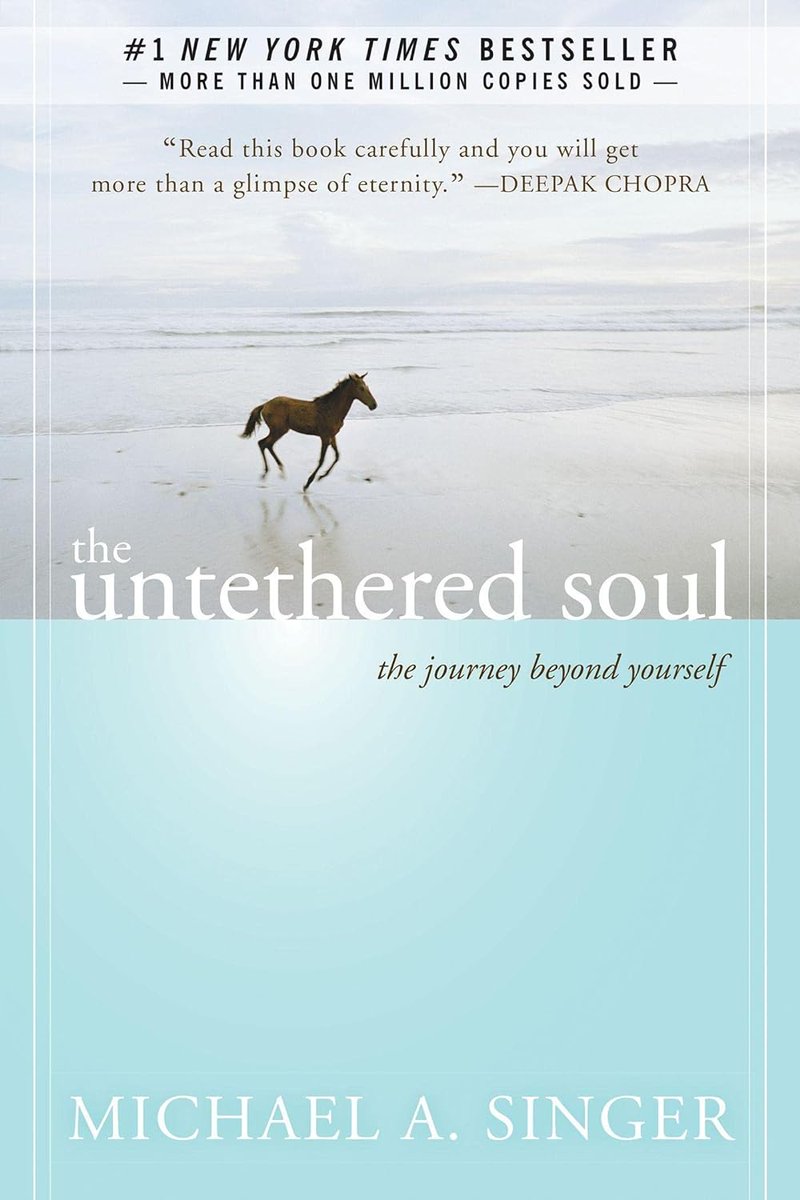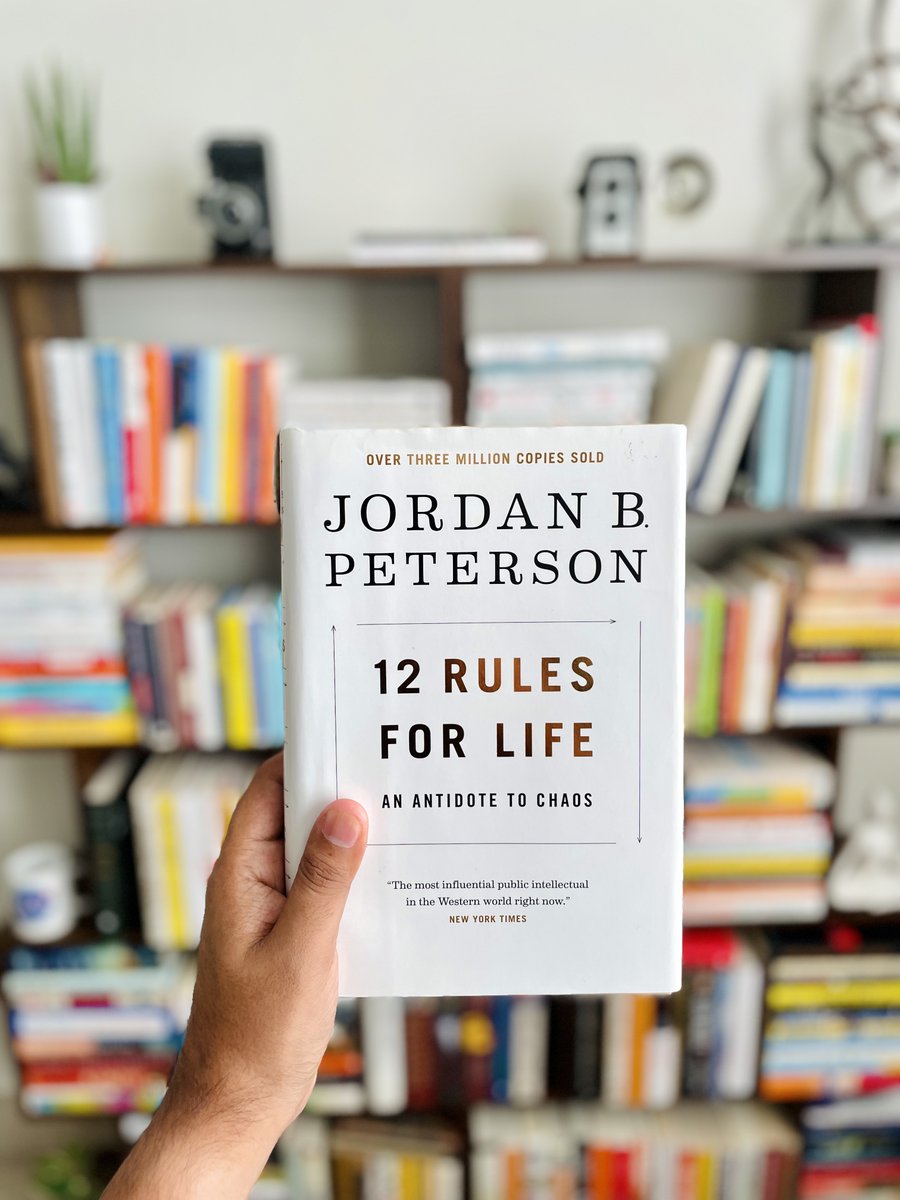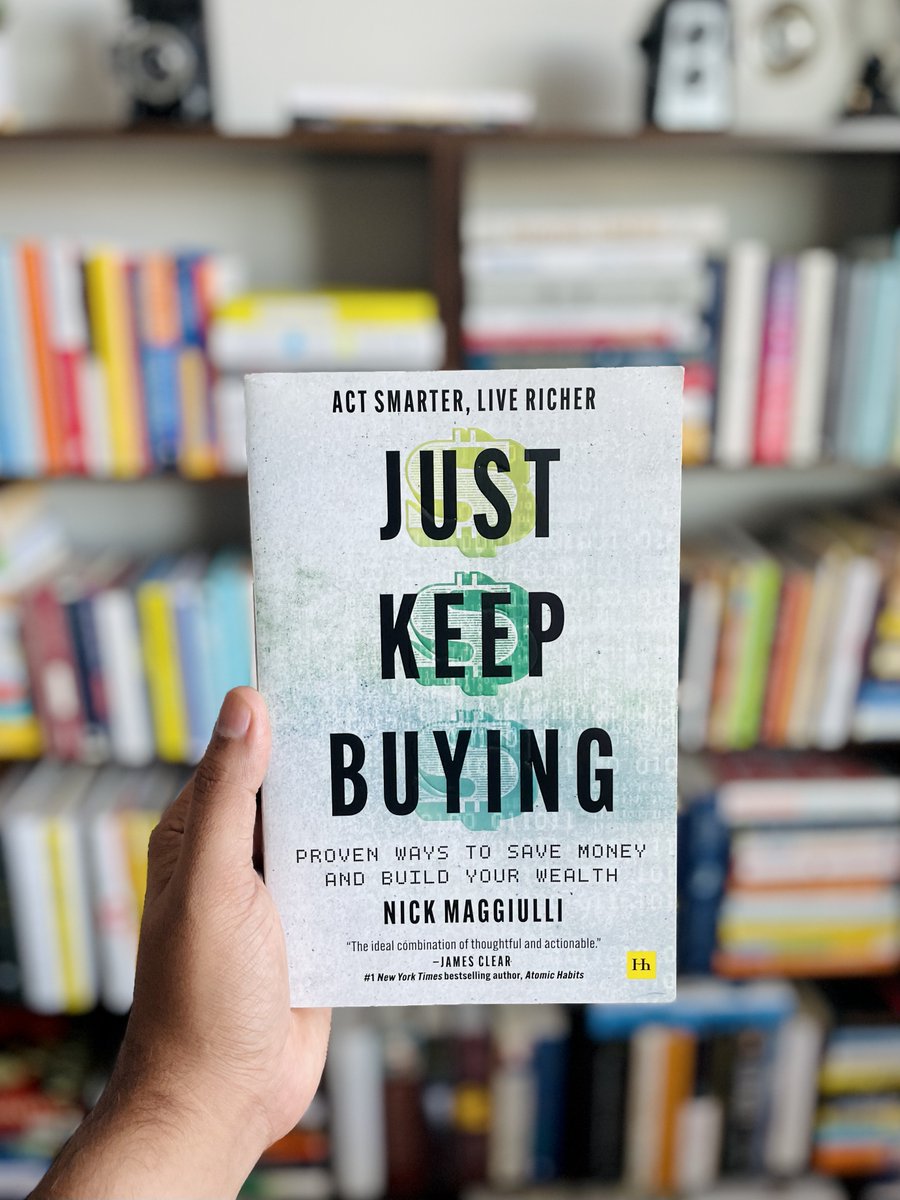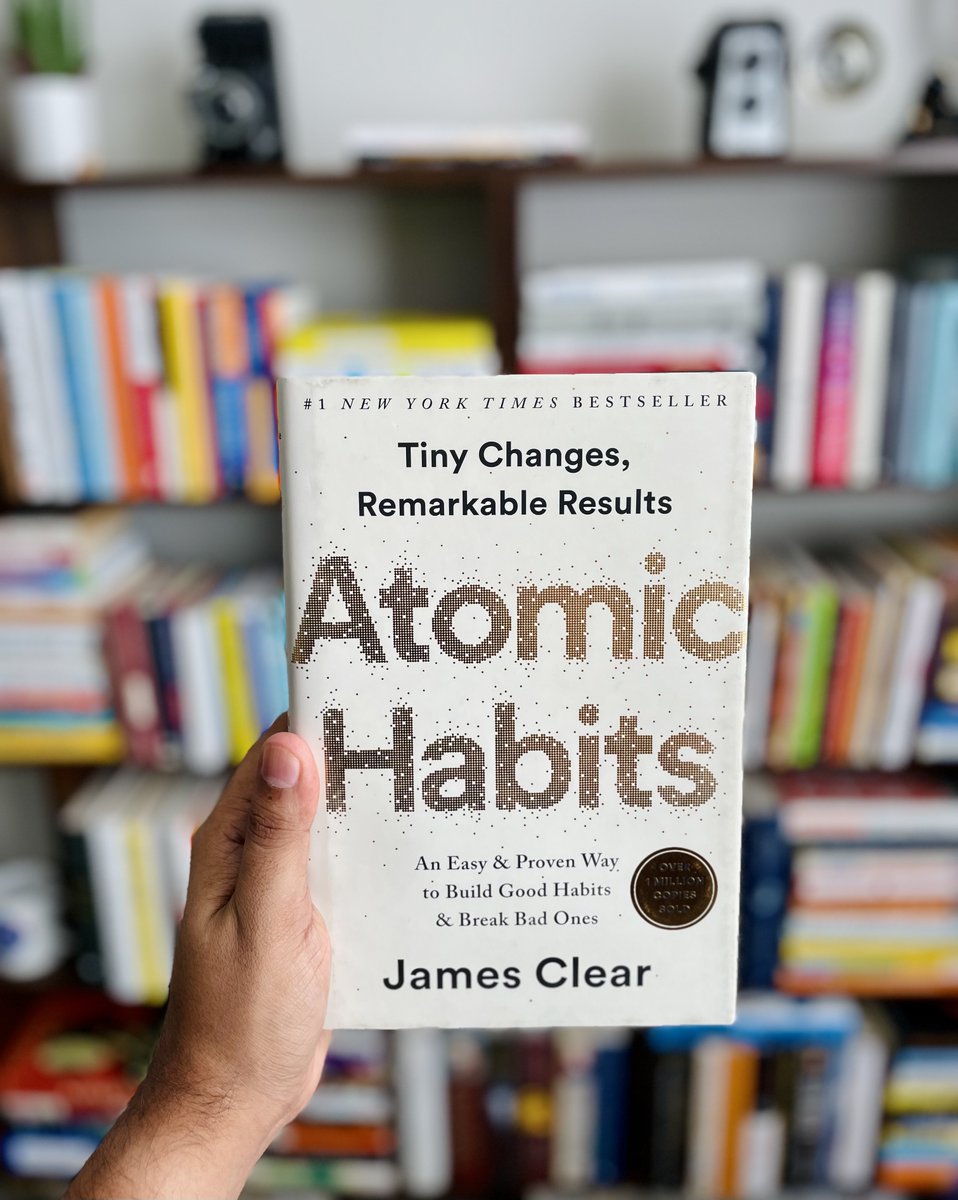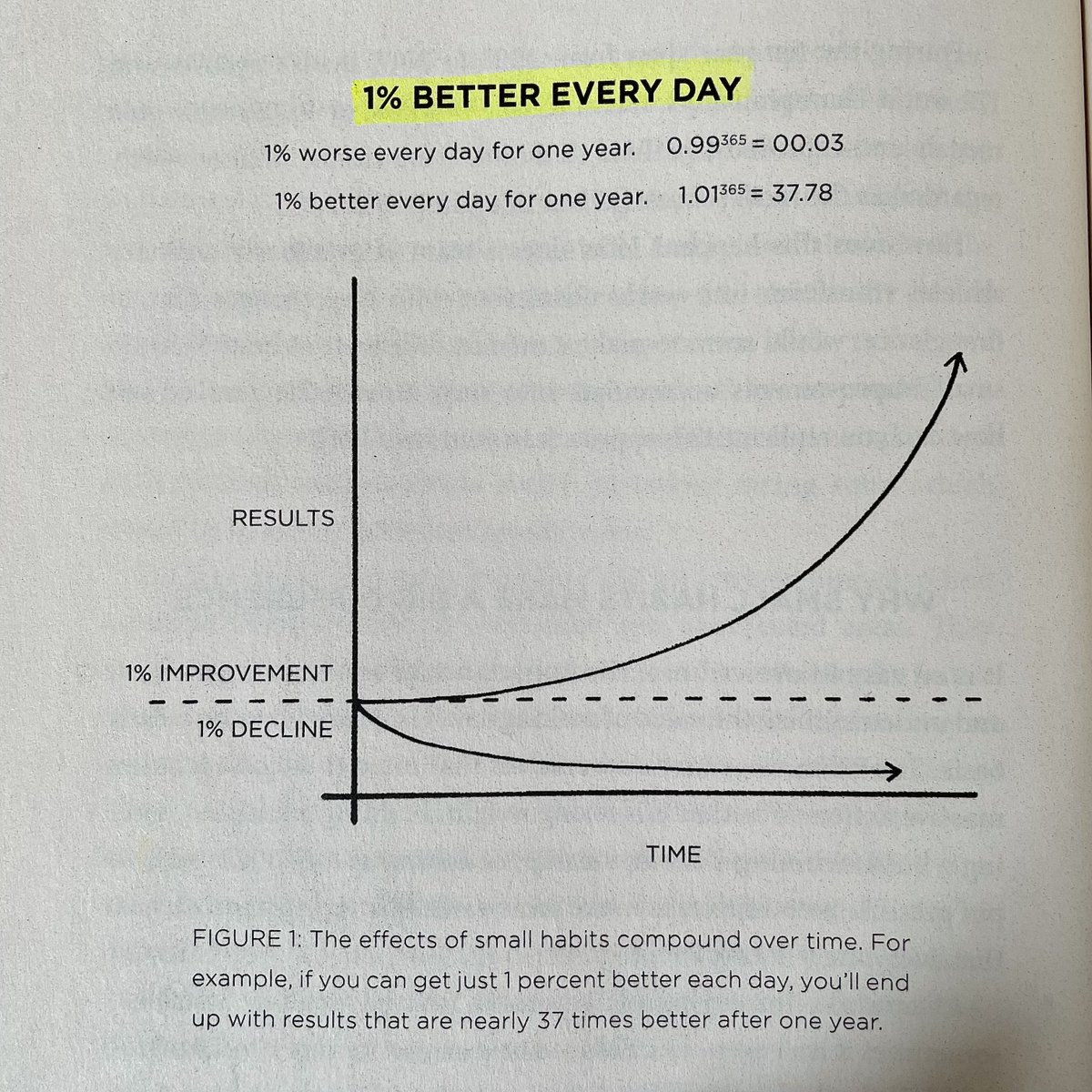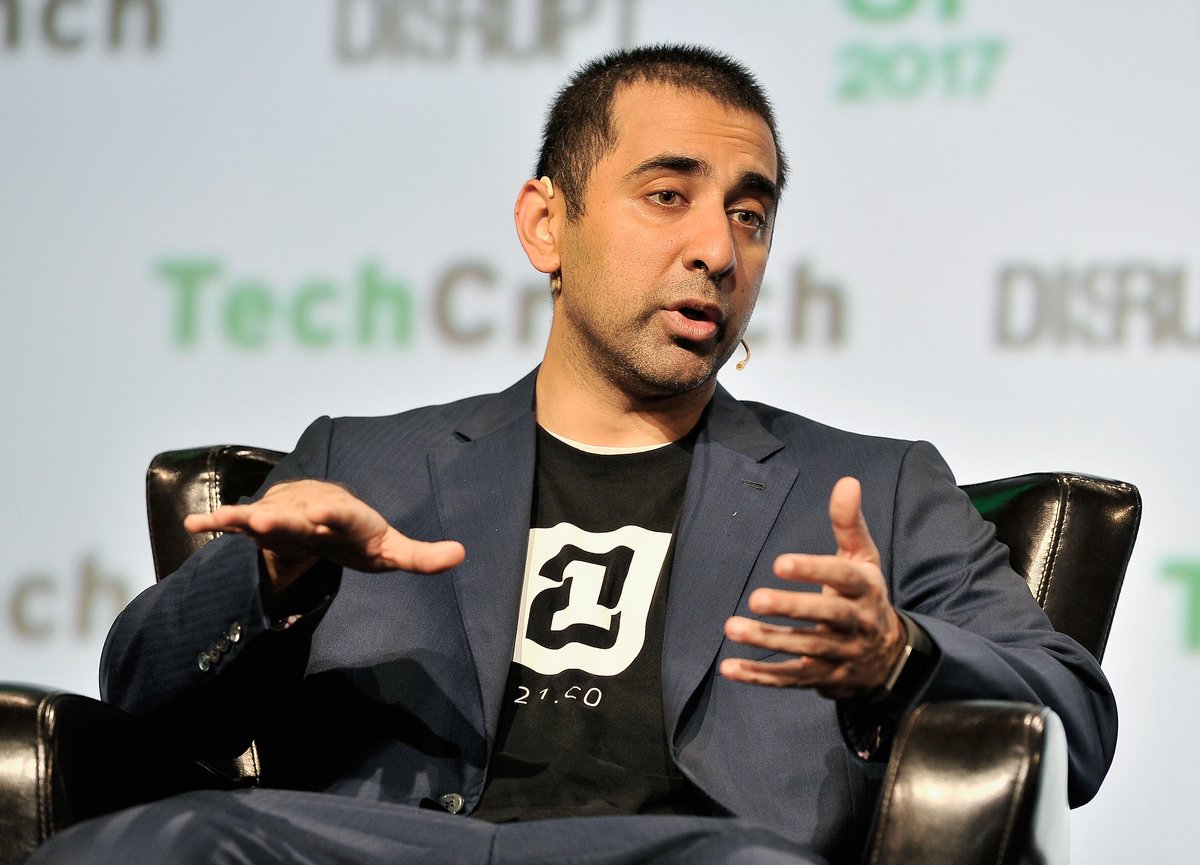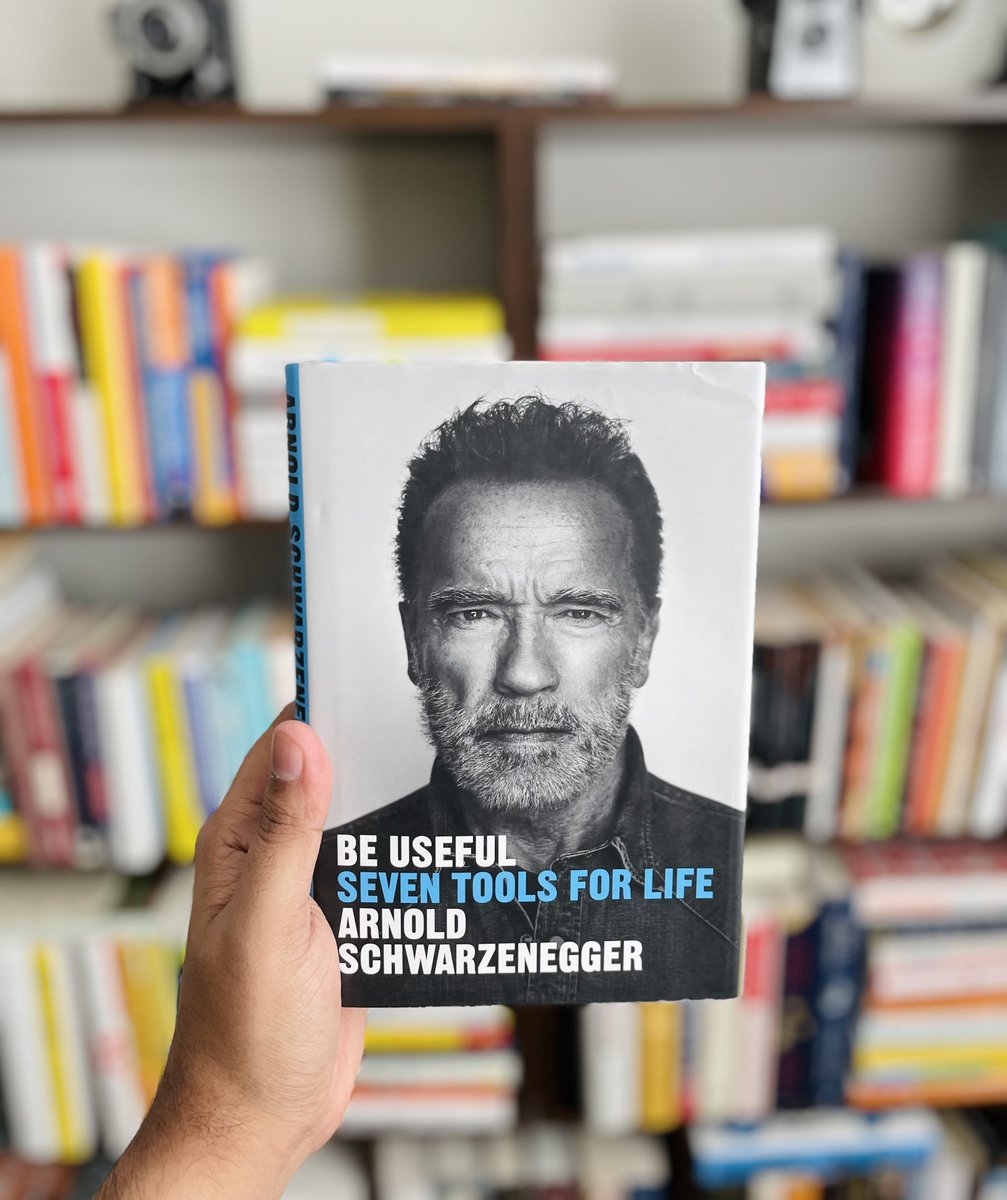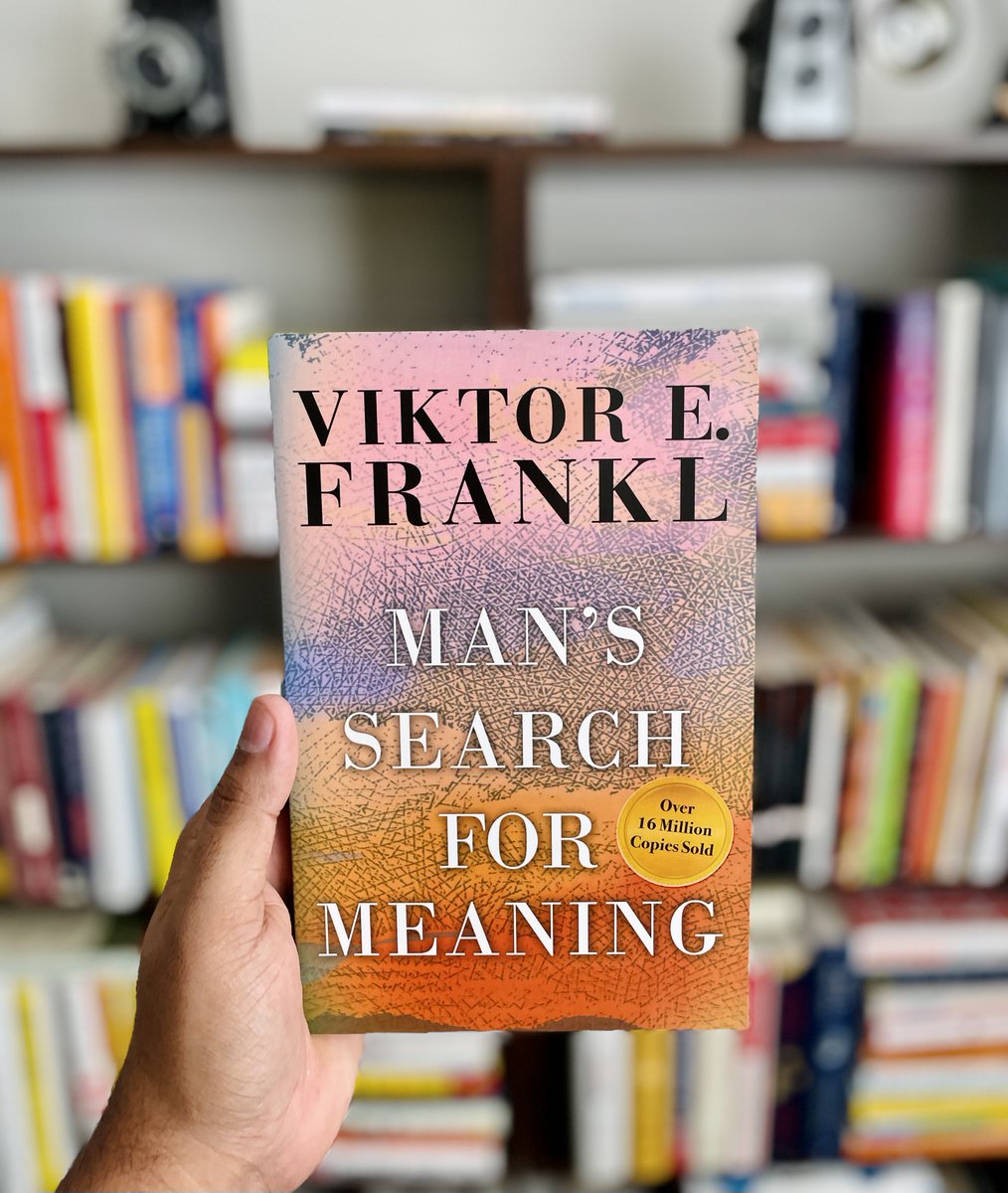“Read enough, and you become a connoisseur. Then you naturally gravitate more towards theory, concepts, non-fiction”, says Naval Ravikant.
The genuine love for reading itself, when cultivated, is a superpower.
25 books recommended by @naval 🧵
The genuine love for reading itself, when cultivated, is a superpower.
25 books recommended by @naval 🧵

1) The Beginning of Infinity and The Fabric of Reality by David Deutsch
If I had to do it over again, I would shelve every other book and just read The Beginning of Infinity and The Fabric of Reality as slowly as possible.
Not the easiest reads, but they made me smarter.


If I had to do it over again, I would shelve every other book and just read The Beginning of Infinity and The Fabric of Reality as slowly as possible.
Not the easiest reads, but they made me smarter.
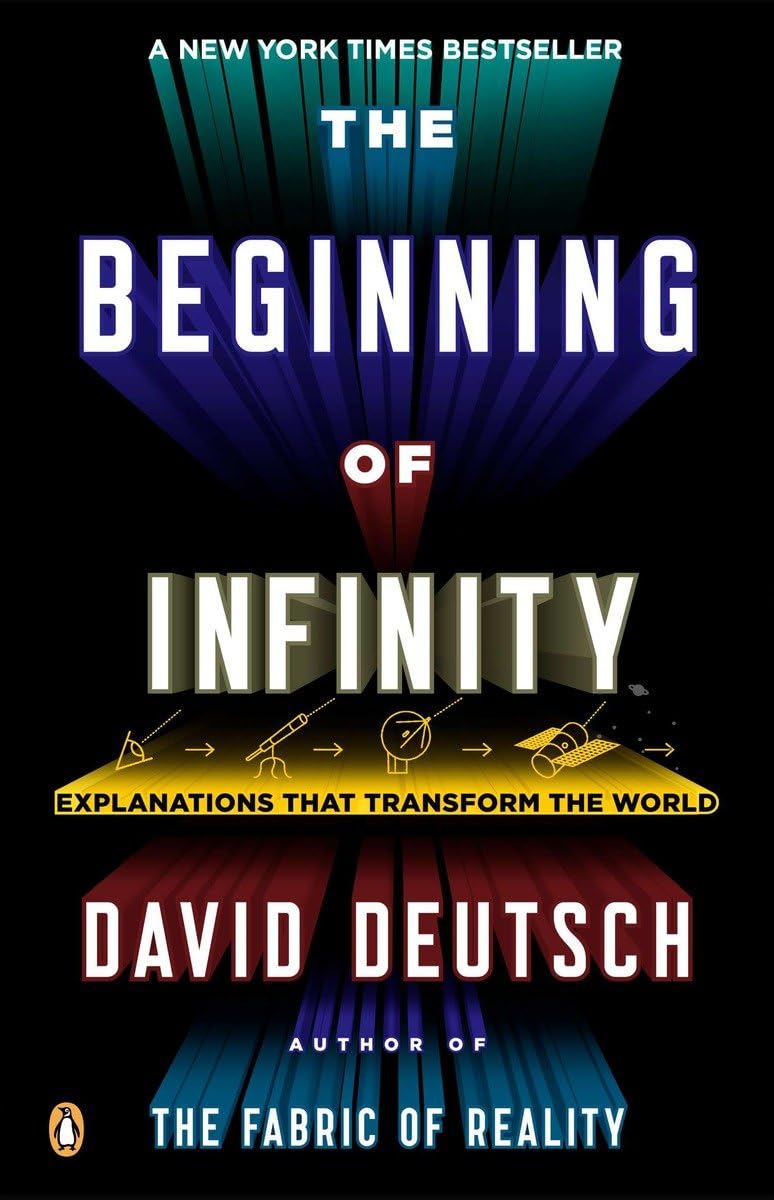
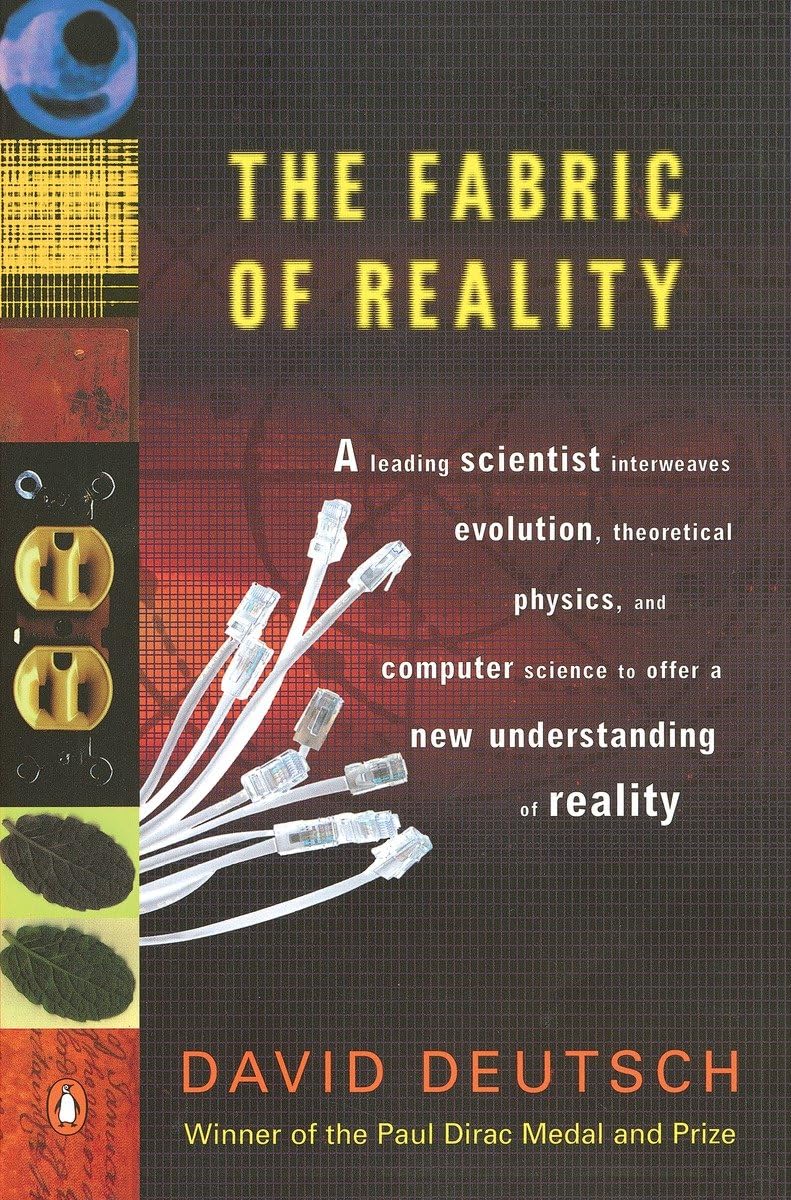
2) Sapiens: A Brief History of Humankind by Yuval Noah Harari
A history of the human species. The observations, frameworks, and mental models will have you looking at history and your fellow humans differently.
Sapiens is the best book of the last decade I have read. He had decades to write Sapiens. There’s lots of great ideas in there and it’s just full of them, chock full per page.
A history of the human species. The observations, frameworks, and mental models will have you looking at history and your fellow humans differently.
Sapiens is the best book of the last decade I have read. He had decades to write Sapiens. There’s lots of great ideas in there and it’s just full of them, chock full per page.
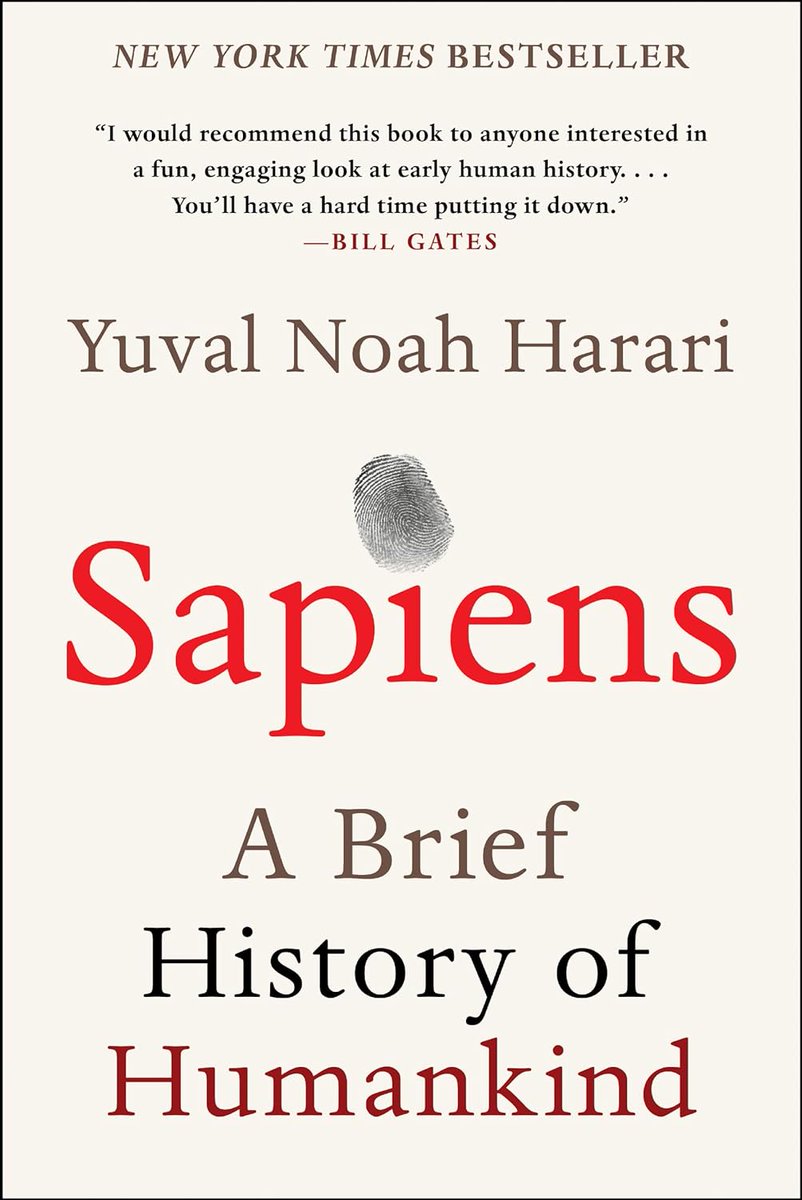
3) Skin in the Game by Nassim Taleb
Lots of great ideas in there. Lots of good mental models and constructs. It's one of the best business books I've ever read. And luckily, it doesn't masquerade as a business book.
Lots of great ideas in there. Lots of good mental models and constructs. It's one of the best business books I've ever read. And luckily, it doesn't masquerade as a business book.
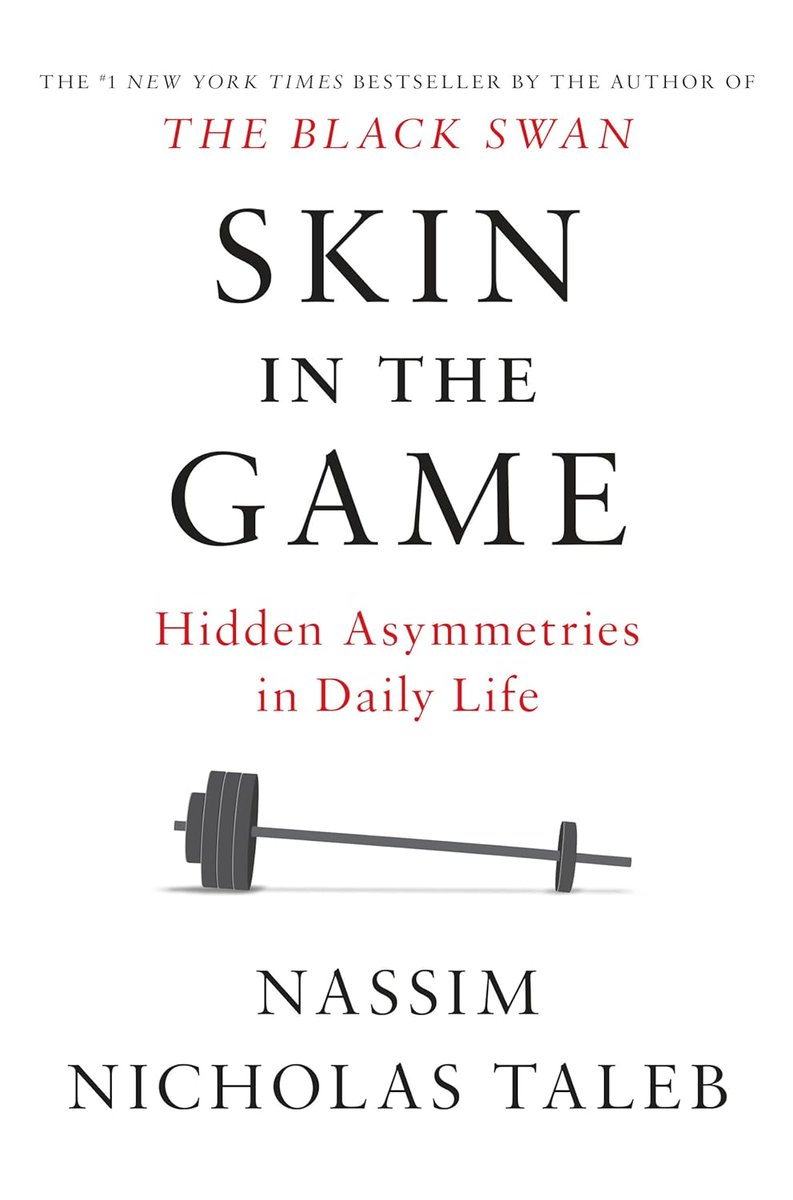
4) The Rational Optimist: How Prosperity Evolves by Matt Ridley
The most brilliant and enlightening book I've read in years. He has written four of my top 20 books.
Everything else written by Matt Ridley. Matt is a scientist, optimist, and forward thinker. One of my favorite authors. I’ve read everything of his and reread everything of his.
The most brilliant and enlightening book I've read in years. He has written four of my top 20 books.
Everything else written by Matt Ridley. Matt is a scientist, optimist, and forward thinker. One of my favorite authors. I’ve read everything of his and reread everything of his.
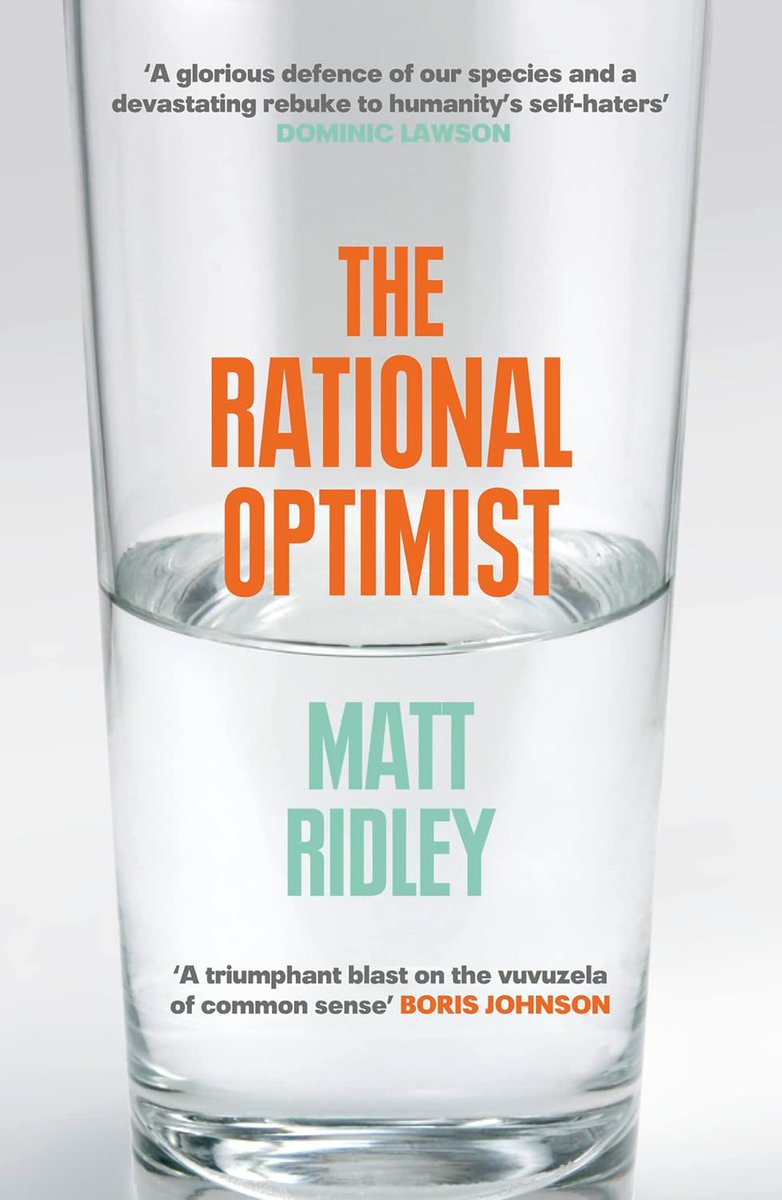
5) Six Easy Pieces by Richard Feynman
I would give my kids a copy of Richard Feynman's Six Easy Pieces and Six Not-So-Easy Pieces: Einstein’s Relativity, Symmetry, and Space.
Richard Feynman is a famous physicist. I love both his demeanor as well as his understanding of physics.
I would give my kids a copy of Richard Feynman's Six Easy Pieces and Six Not-So-Easy Pieces: Einstein’s Relativity, Symmetry, and Space.
Richard Feynman is a famous physicist. I love both his demeanor as well as his understanding of physics.
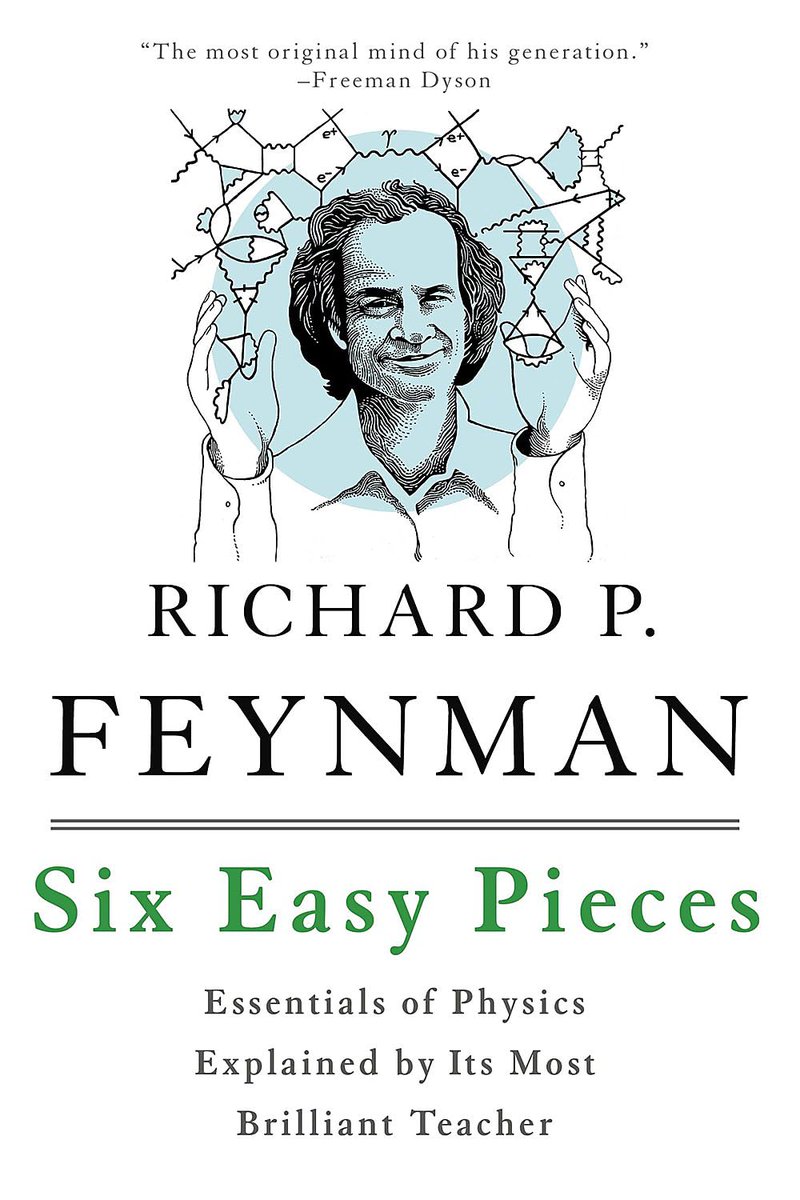
6) The Thing Explainer: Complicated Stuff in Simple Words by Randall Munroe
A great book by Randall Munroe (creator of xkcd, a very science-oriented webcomic.) In this book, he explains very complicated concepts, all the way from climate change to physical systems to submarines while only using the 1,000 most common words in the English language.
He called the Saturn Five rocket “Up Goer Five.” You can’t define a rocket as a spaceship or a rocket. It’s self-referential. He says, “up goer.” It’s this thing that goes up. Kids get it right away.
A great book by Randall Munroe (creator of xkcd, a very science-oriented webcomic.) In this book, he explains very complicated concepts, all the way from climate change to physical systems to submarines while only using the 1,000 most common words in the English language.
He called the Saturn Five rocket “Up Goer Five.” You can’t define a rocket as a spaceship or a rocket. It’s self-referential. He says, “up goer.” It’s this thing that goes up. Kids get it right away.
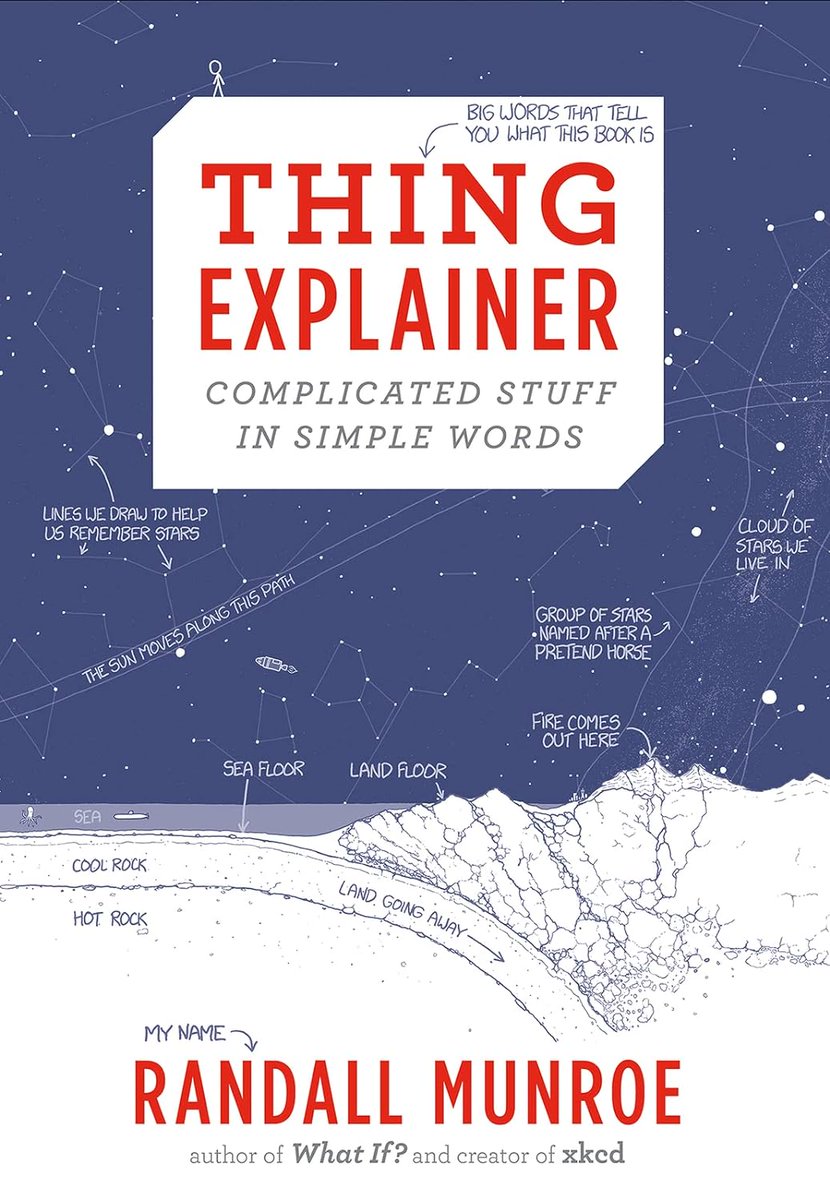
7) Thinking Physics: Understandable Practical Reality by Lewis Carroll Epstein
There’s another great book called Thinking Physics. I open this one all the time and I love the back cover. It has this great little pitch that says, “The only book used in both grade school and graduate school.” It’s true.
It’s all simple physics puzzles that can be explained to a 12-year-old child and can be explained to a 25-year-old grad student in physics. They all have fundamental insights in physics. They’re all kind of tricky, but anyone can get to the answer through purely logical reasoning.
There’s another great book called Thinking Physics. I open this one all the time and I love the back cover. It has this great little pitch that says, “The only book used in both grade school and graduate school.” It’s true.
It’s all simple physics puzzles that can be explained to a 12-year-old child and can be explained to a 25-year-old grad student in physics. They all have fundamental insights in physics. They’re all kind of tricky, but anyone can get to the answer through purely logical reasoning.
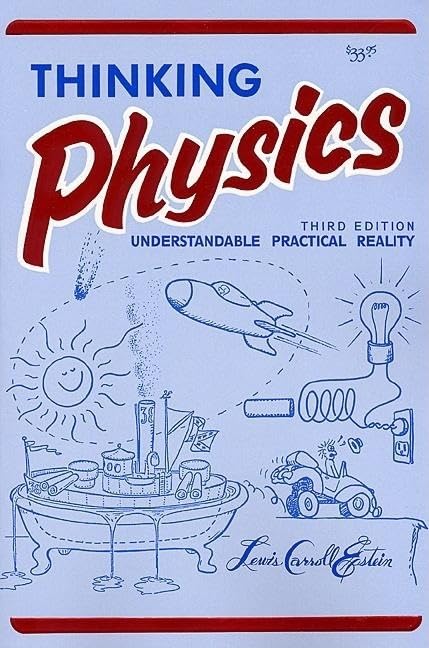
8) The Lessons of History by Will & Ariel Durant
This is a great book I really liked which summarizes some of the larger themes of history, very incisive. And unlike most history books, it's actually really small, and it covers a lot of ground.
This is a great book I really liked which summarizes some of the larger themes of history, very incisive. And unlike most history books, it's actually really small, and it covers a lot of ground.
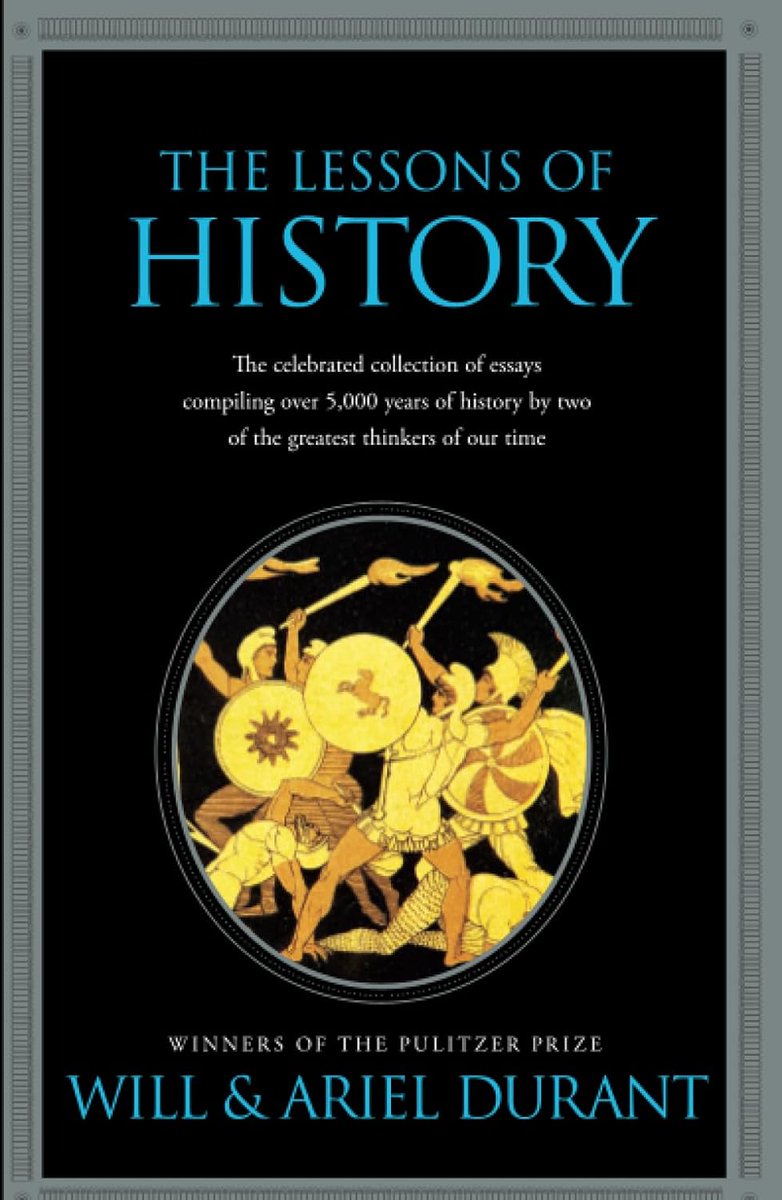
9) Poor Charlie’s Almanack: The Wit and Wisdom of Charles T. Munger by Charlie Munger (edited by Peter Kaufman)
This masquerades as a business book, but it's really just Charlie Munger's (of Berkshire Hathaway) advice on overcoming oneself to live a successful and virtuous life. Part biography and part collection of Charlie’s speeches, this is the only book on Munger you need.
This masquerades as a business book, but it's really just Charlie Munger's (of Berkshire Hathaway) advice on overcoming oneself to live a successful and virtuous life. Part biography and part collection of Charlie’s speeches, this is the only book on Munger you need.
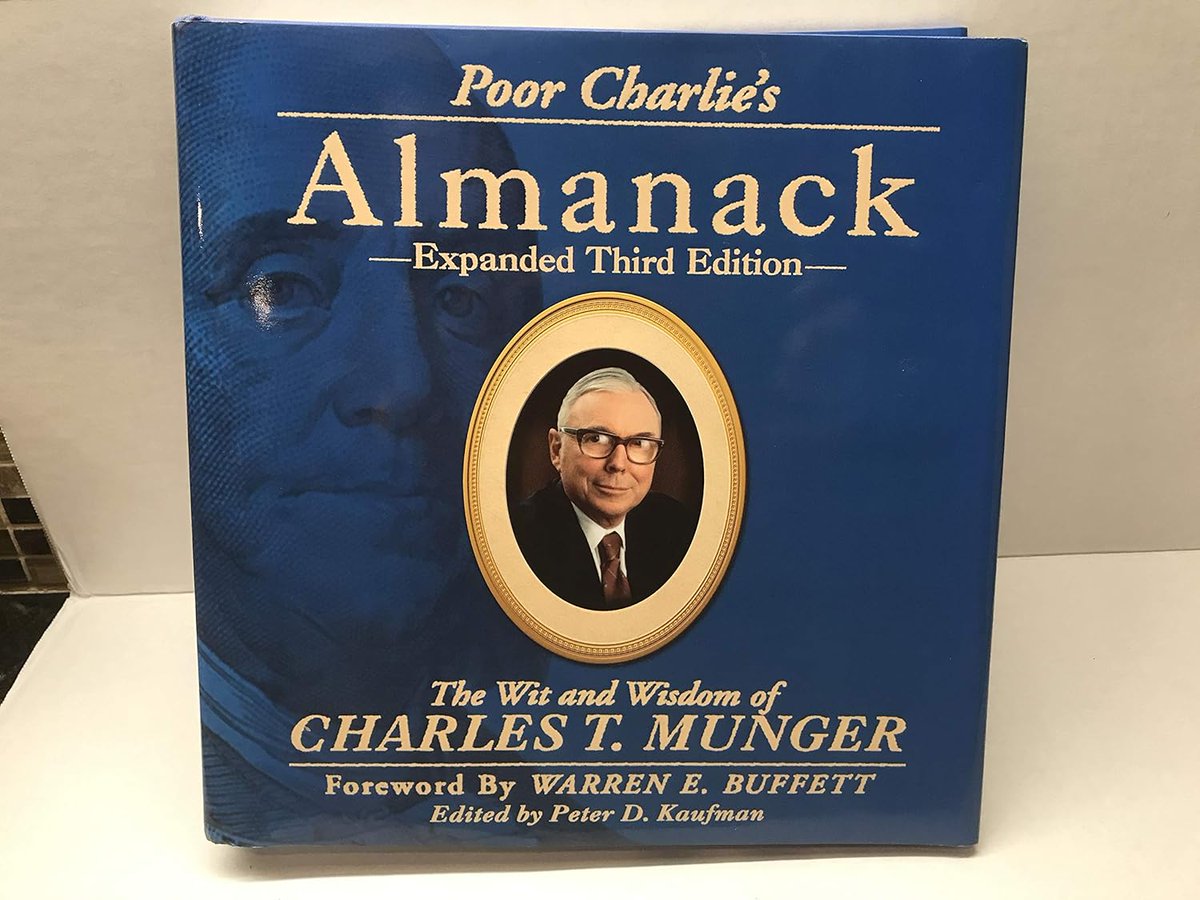
10) Reality Is Not What It Seems: The Journey to Quantum Gravity by Carlo Rovelli
Physics, poetry, philosophy, and history packaged in a very accessible form.
Physics, poetry, philosophy, and history packaged in a very accessible form.
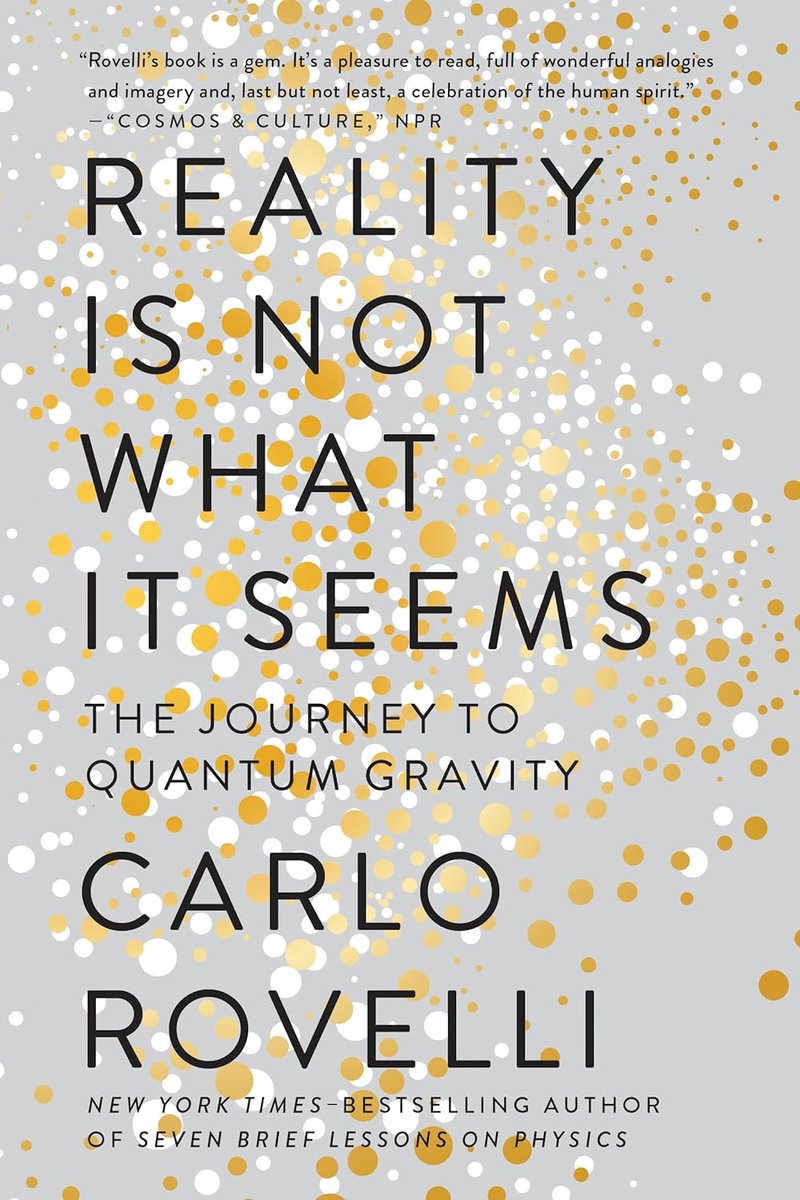
11) Theory of Everything (The Enlightened Perspective) - Dreamstate Trilogy by Jed McKenna
Everything by Jed McKenna. Jed spits raw truth. His style may be off-putting but the dedication to truth is unparalleled.
Everything by Jed McKenna. Jed spits raw truth. His style may be off-putting but the dedication to truth is unparalleled.
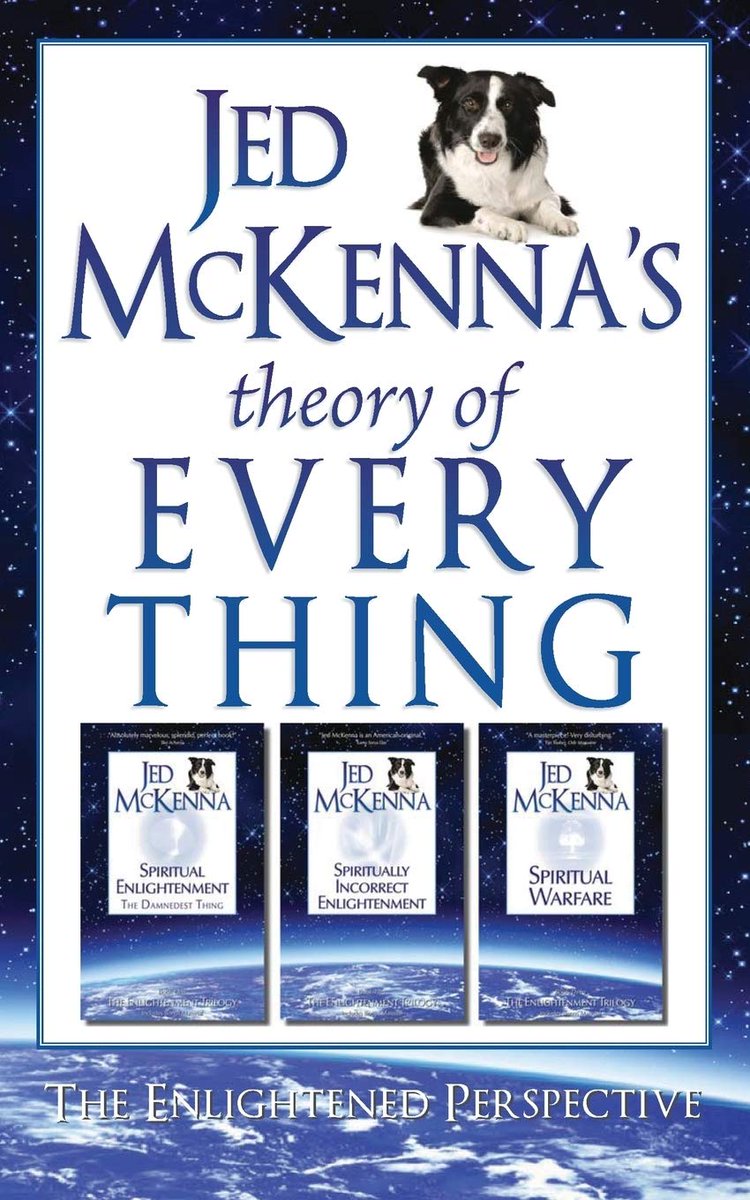
12) Atmamun: The Path to achieving the bliss of the Himalayan Swamis. And the freedom of a living God by Kapil Gupta.
Everything by Kapil Gupta, MD. Kapil recently became a personal advisor and coach to me, and this comes from a person who doesn’t believe in coaches.
Everything by Kapil Gupta, MD. Kapil recently became a personal advisor and coach to me, and this comes from a person who doesn’t believe in coaches.
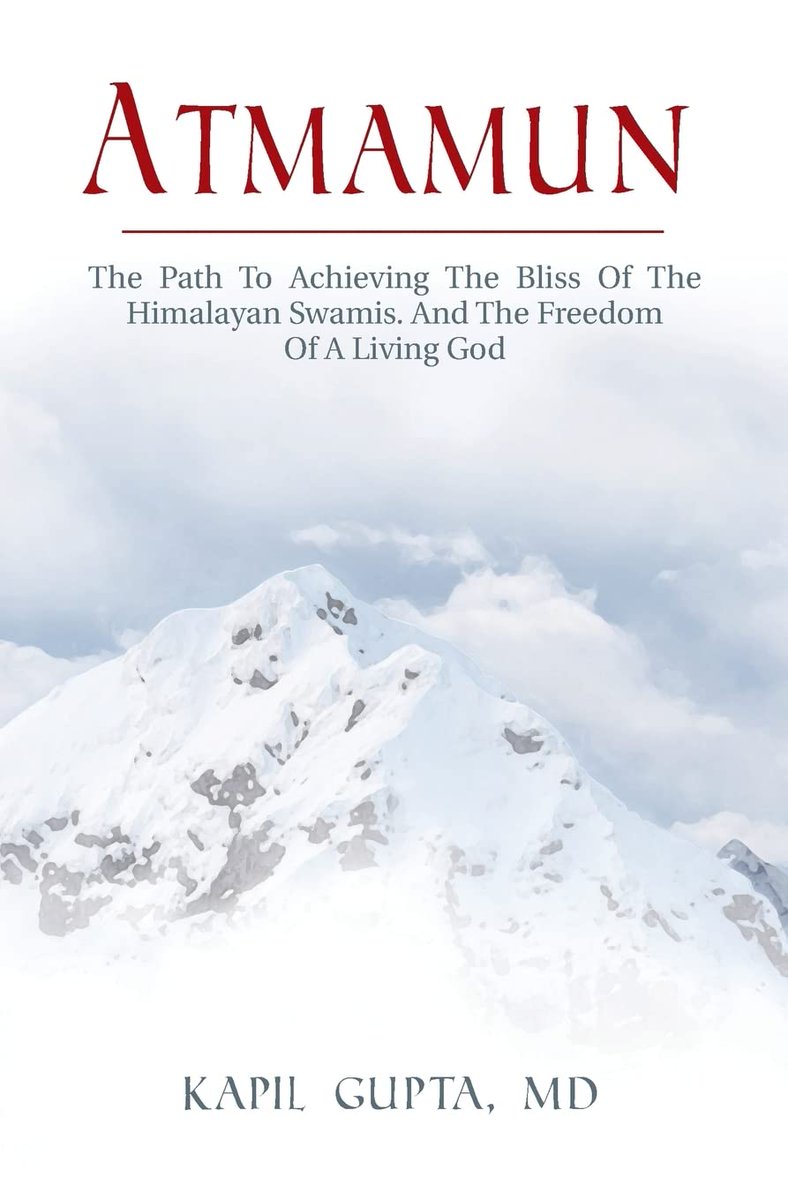
13) The Book of Life by Jiddu Krishnamurti
Krishnamurti is a lesser-known guy, an indian philosopher who lived at the turn of the last century and is extremely influential to me. He’s an uncompromising, very direct person who basically tells you to look at your own mind at all times. I have been hugely influenced by him. Probably the best book is The Book of Life, which is excerpts from his various speeches and books stitched together.
I'll give my kids a copy of The Book of Life. I'll tell them to save it until they're older because it won't make much sense while they're younger.
Krishnamurti is a lesser-known guy, an indian philosopher who lived at the turn of the last century and is extremely influential to me. He’s an uncompromising, very direct person who basically tells you to look at your own mind at all times. I have been hugely influenced by him. Probably the best book is The Book of Life, which is excerpts from his various speeches and books stitched together.
I'll give my kids a copy of The Book of Life. I'll tell them to save it until they're older because it won't make much sense while they're younger.
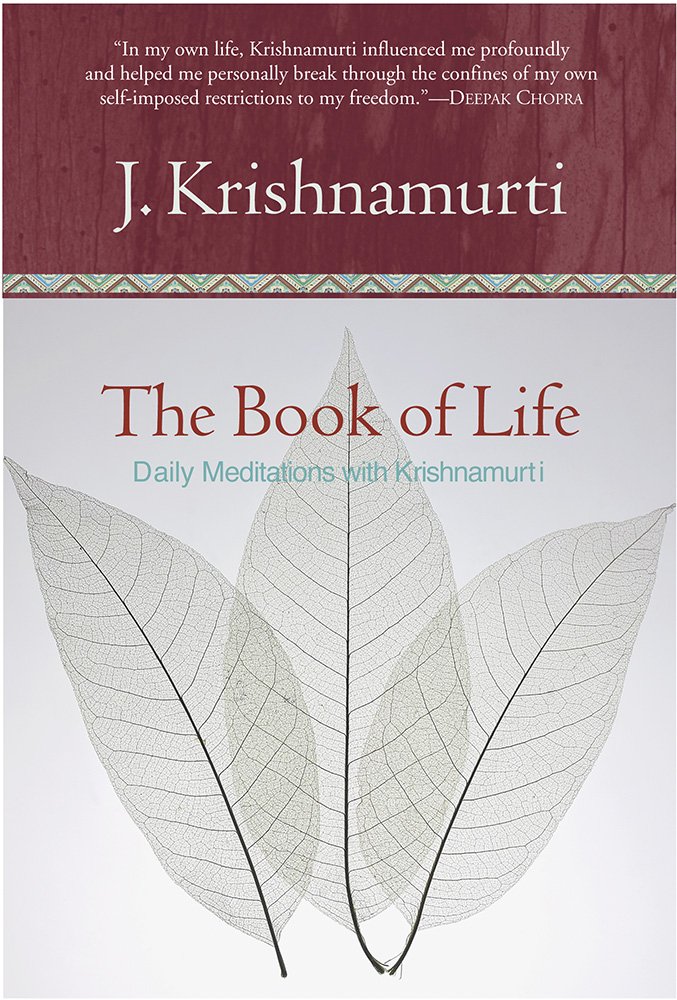
14) Siddhartha by Herman Hesse
I love this as a classic book on philosophy, a good introduction for someone starting out. I’ve given out more copies of this book than any other.
I love this as a classic book on philosophy, a good introduction for someone starting out. I’ve given out more copies of this book than any other.
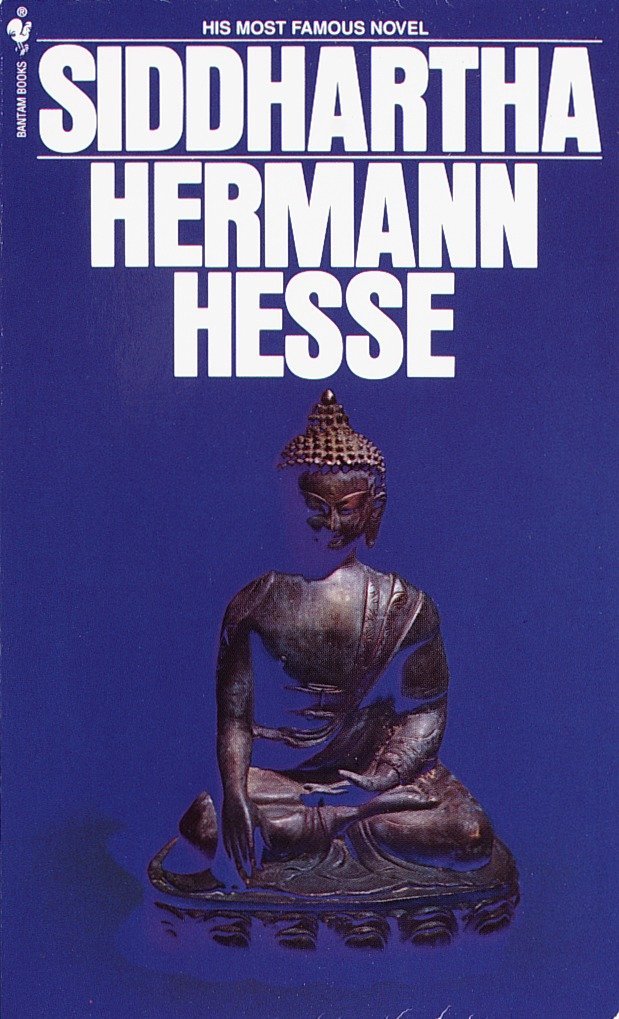
15) The Book of Secrets: 112 Meditations to Discover the Mystery Within by Osho
Most meditation techniques are concentration methods, and there are many, many meditation techniques. If you want to run through a bunch of them, you can pick up pick up a book called The Book of Secrets by Osho.
I know he's gotten a bad rap recently, but he was he was a pretty smart guy. It's actually a translation of an old Sanskrit book with 112 different meditations. You can try each one and see which one works for you.
Most meditation techniques are concentration methods, and there are many, many meditation techniques. If you want to run through a bunch of them, you can pick up pick up a book called The Book of Secrets by Osho.
I know he's gotten a bad rap recently, but he was he was a pretty smart guy. It's actually a translation of an old Sanskrit book with 112 different meditations. You can try each one and see which one works for you.
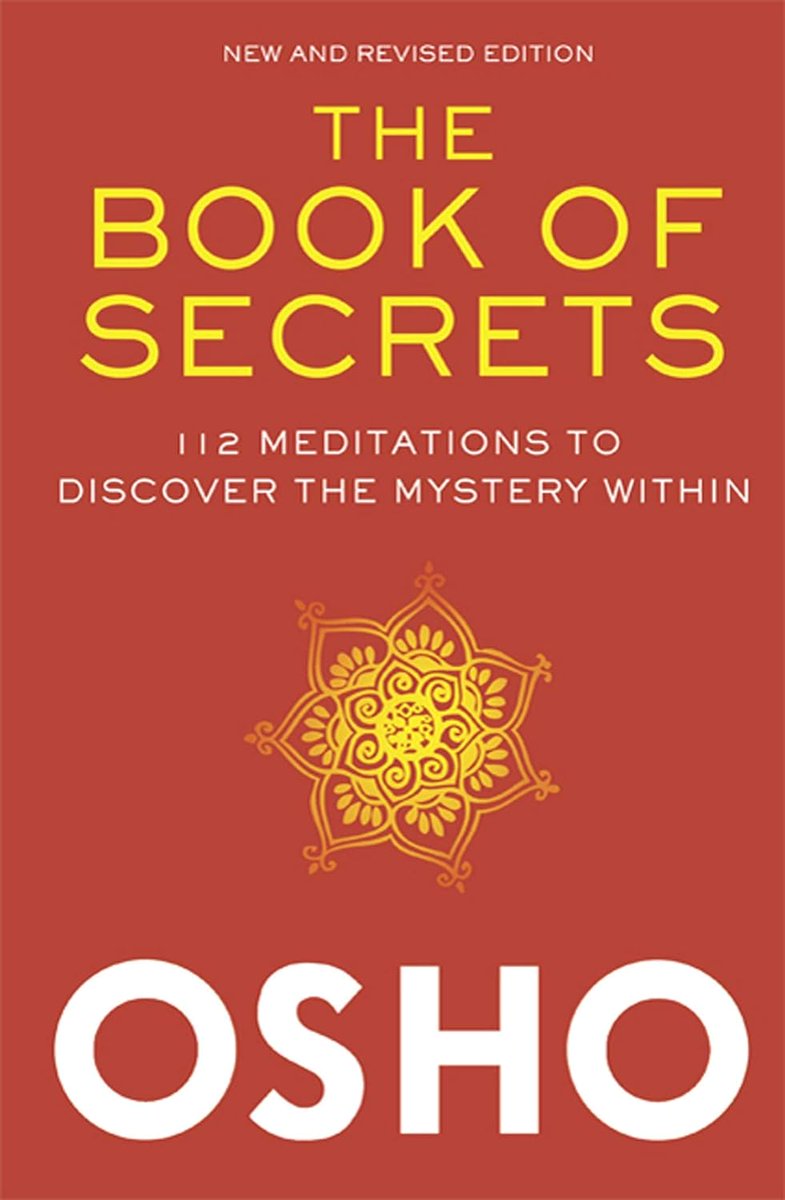
16) Meditations by Marcus Aurelius.
Marcus Aurelius was absolutely life changing for me. It's the personal diary of the Emperor of Rome. Here's a guy who was probably the most powerful human being on Earth at the time he lived. He’s writing a diary to himself, never expecting it to be published.
When you open this book, you realize he had all the same issues and all the same mental struggles, he was trying to be a better person. Right there, you figure out success and power don't improve your internal state, you still have to work on it.
Marcus Aurelius was absolutely life changing for me. It's the personal diary of the Emperor of Rome. Here's a guy who was probably the most powerful human being on Earth at the time he lived. He’s writing a diary to himself, never expecting it to be published.
When you open this book, you realize he had all the same issues and all the same mental struggles, he was trying to be a better person. Right there, you figure out success and power don't improve your internal state, you still have to work on it.
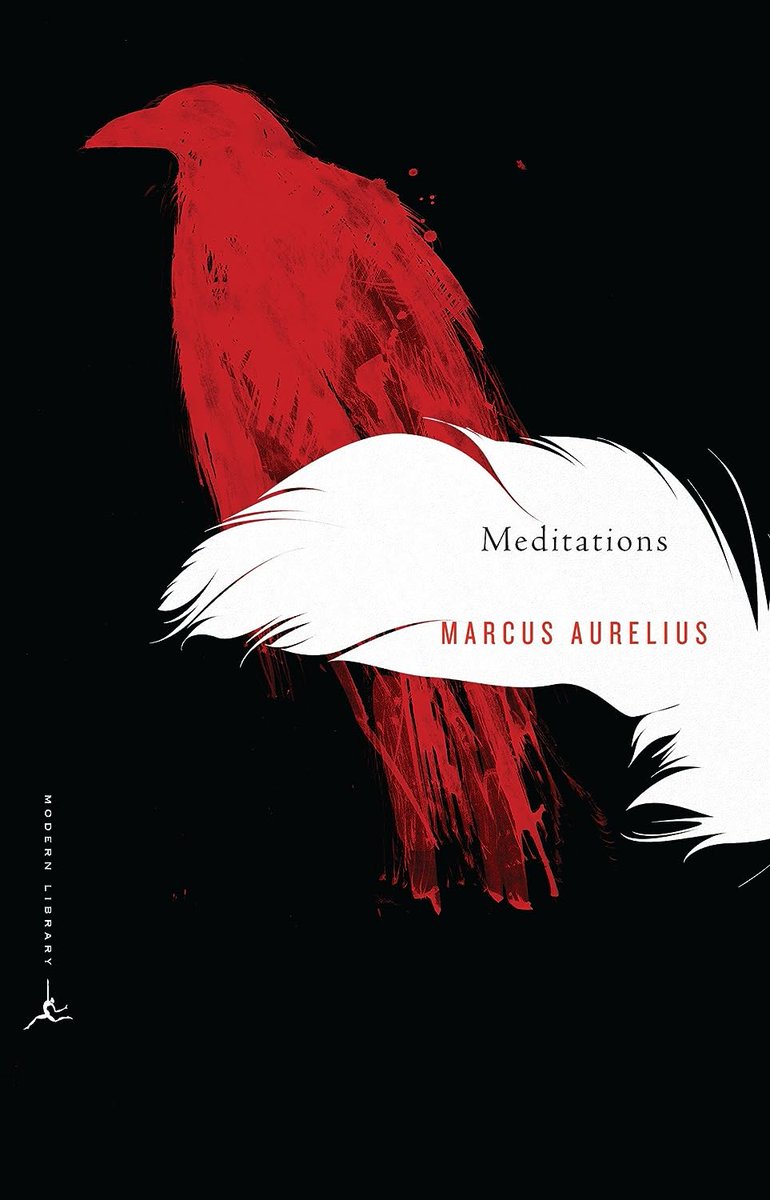
17) Love Yourself Like Your Life Depends on It by Kamal Ravikant
I thought it was very succinctly written. (Obviously a plug for my bro @kamalravikant )
He’s the philosopher in the family — I’m just the amateur.
I thought it was very succinctly written. (Obviously a plug for my bro @kamalravikant )
He’s the philosopher in the family — I’m just the amateur.
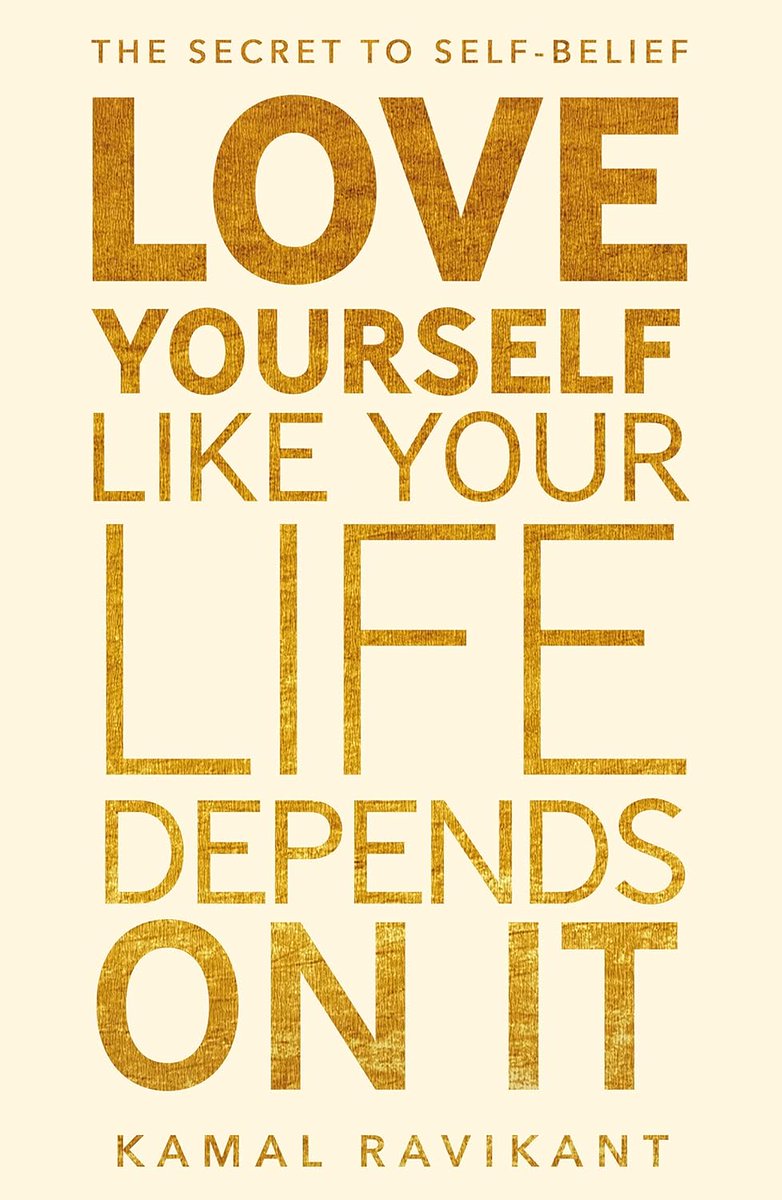
18) How to Change your Mind by Michael Pollan
I think it is a brilliant book everybody should read. The book discusses psychedelics. Psychedelics are a bit of a cheat code in self-observation. I don't recommend drugs for anybody; you can do it all through pure meditation.
If you want to accelerate ahead, you know, psychedelics are good for that.
I think it is a brilliant book everybody should read. The book discusses psychedelics. Psychedelics are a bit of a cheat code in self-observation. I don't recommend drugs for anybody; you can do it all through pure meditation.
If you want to accelerate ahead, you know, psychedelics are good for that.
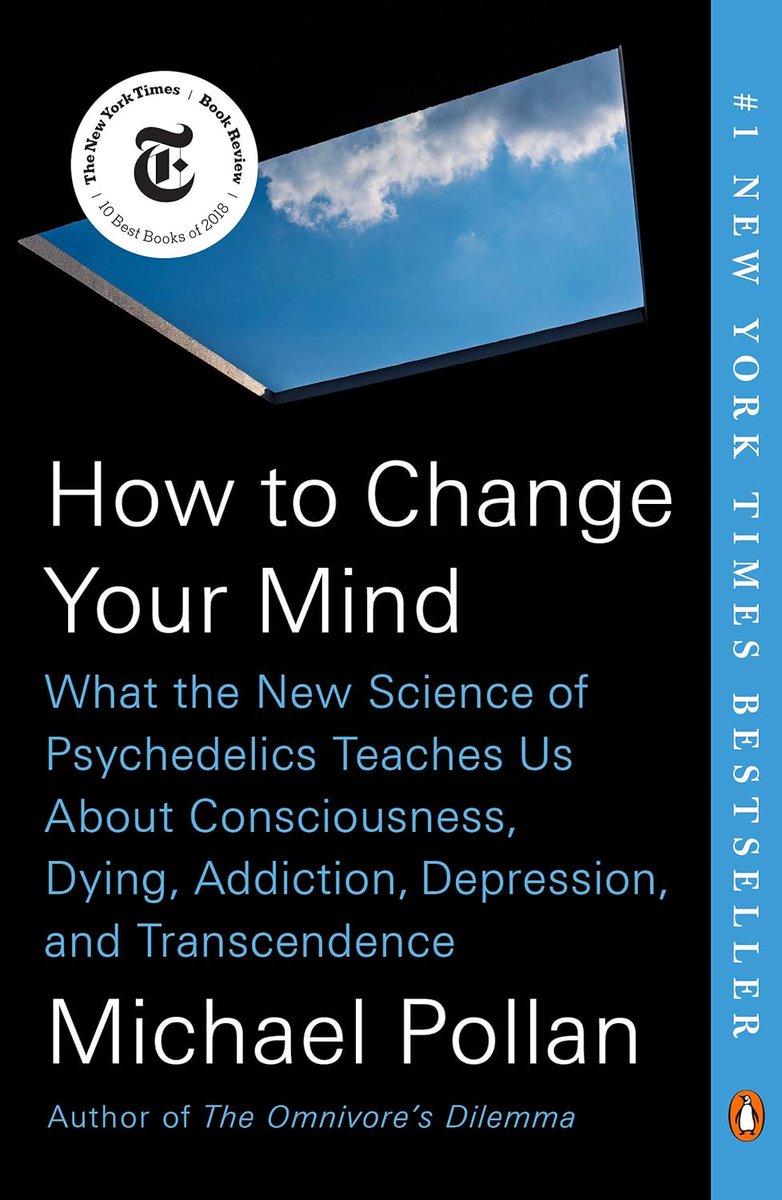
20) The Prophet by Kahlil Gibran
This book reads like a modern-day poetic religious tome. It’s up there with the Bhagavad Gita, the Tao Te Ching, the Bible, and the Qur’an. It is written in the style where it has a feel of religiosity and truth, but it was very approachable, beautiful, non-denominational, and non-sectarian. I loved this book.
He has a gift for poetically describing what children are like, what lovers are like, what marriage should be like, how you should treat your enemies and your friends, how you should work with money, what can you think of every time you have to kill something to eat it. I felt, like the great religious books, it gave a very deep, very philosophical, but very true answer to how to approach the major problems in life. I recommend the prophet to anybody, whether you’re religious or not. Whether you are Christian, Hindu, Jewish, or Atheist. I think it’s a beautiful book, and it’s worth reading.
This book reads like a modern-day poetic religious tome. It’s up there with the Bhagavad Gita, the Tao Te Ching, the Bible, and the Qur’an. It is written in the style where it has a feel of religiosity and truth, but it was very approachable, beautiful, non-denominational, and non-sectarian. I loved this book.
He has a gift for poetically describing what children are like, what lovers are like, what marriage should be like, how you should treat your enemies and your friends, how you should work with money, what can you think of every time you have to kill something to eat it. I felt, like the great religious books, it gave a very deep, very philosophical, but very true answer to how to approach the major problems in life. I recommend the prophet to anybody, whether you’re religious or not. Whether you are Christian, Hindu, Jewish, or Atheist. I think it’s a beautiful book, and it’s worth reading.
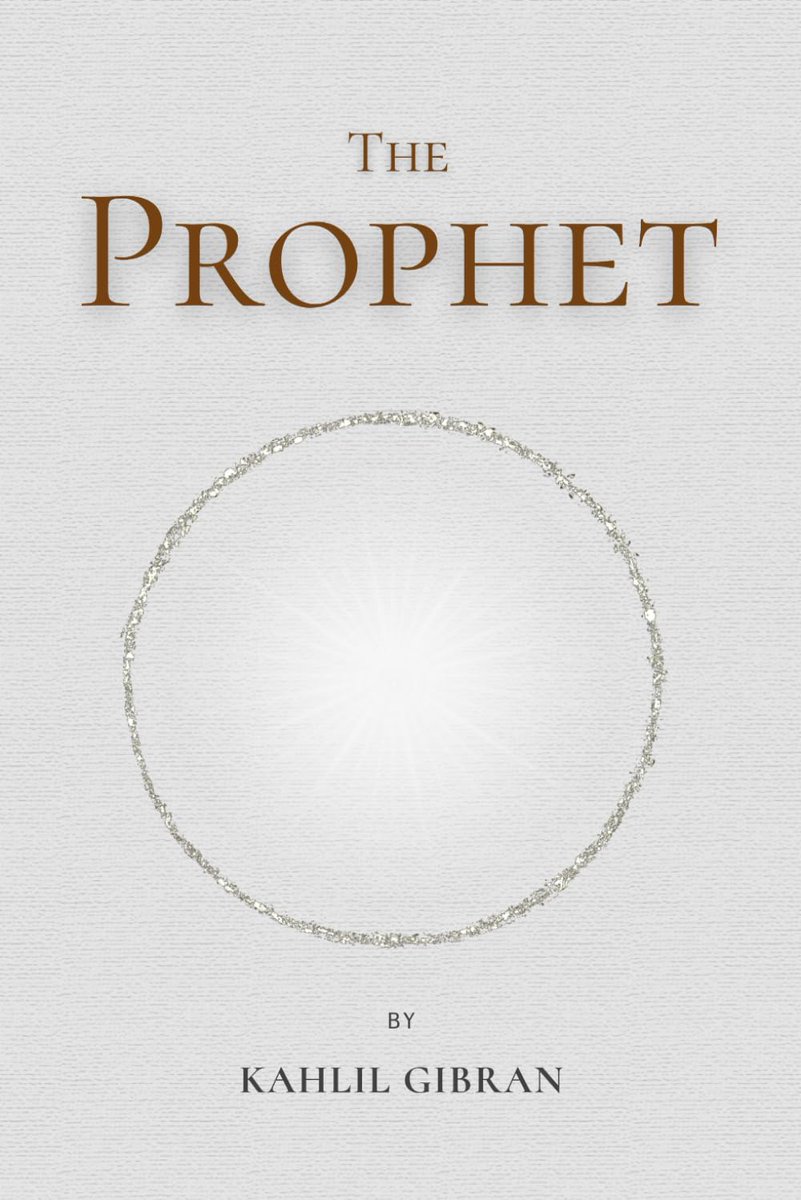
21) Ficciones by Jorge Luis Borges
I love Jorge Luis Borges, the Argentine author. His short story collection Ficciones, or Labyrinths, is amazing. Borges is probably still the most powerful author I have read who wasn’t just outright writing philosophy. There was philosophy in there with the sci-fi.
I love Jorge Luis Borges, the Argentine author. His short story collection Ficciones, or Labyrinths, is amazing. Borges is probably still the most powerful author I have read who wasn’t just outright writing philosophy. There was philosophy in there with the sci-fi.
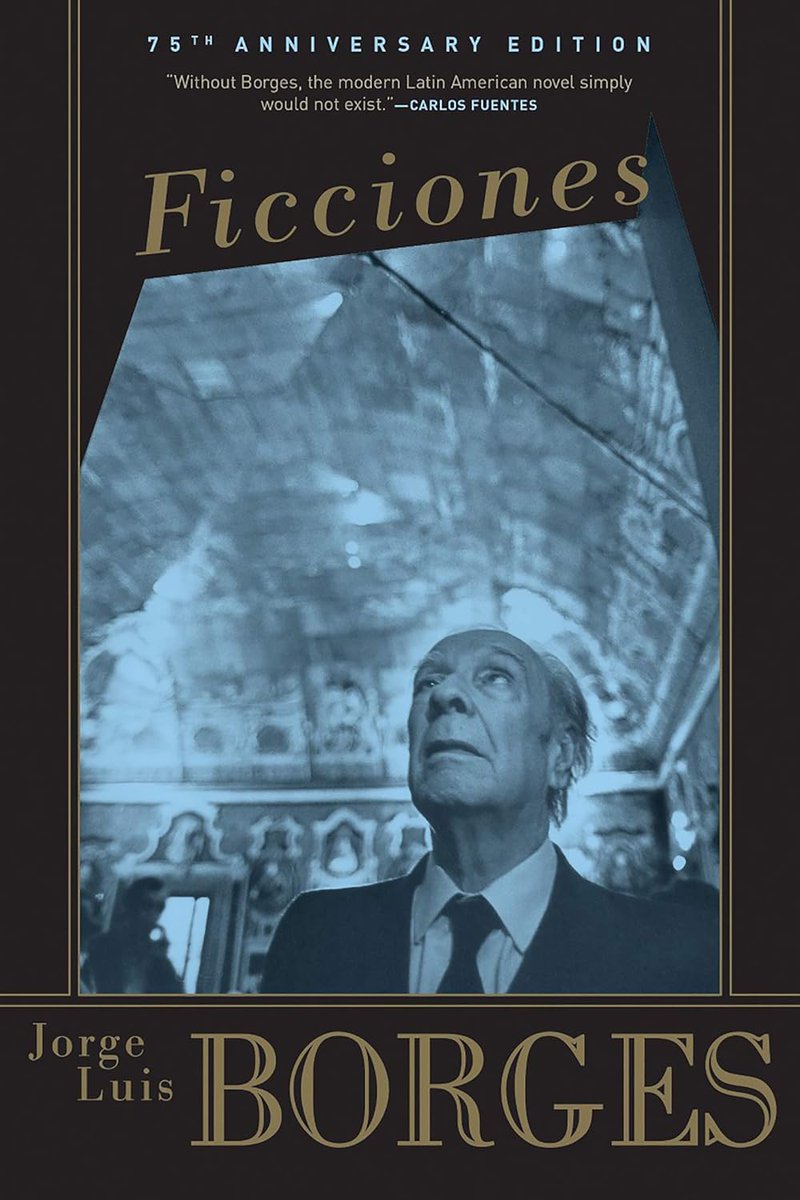
22) Stories of Your Life and Others by Ted Chiang
My current favorite short story, sci-fi short story: probably “Understand” by Ted Chiang. It’s in a collection called Stories of Your Life and Others.
“Story of Your Life” was made into a movie called Arrival.
My current favorite short story, sci-fi short story: probably “Understand” by Ted Chiang. It’s in a collection called Stories of Your Life and Others.
“Story of Your Life” was made into a movie called Arrival.
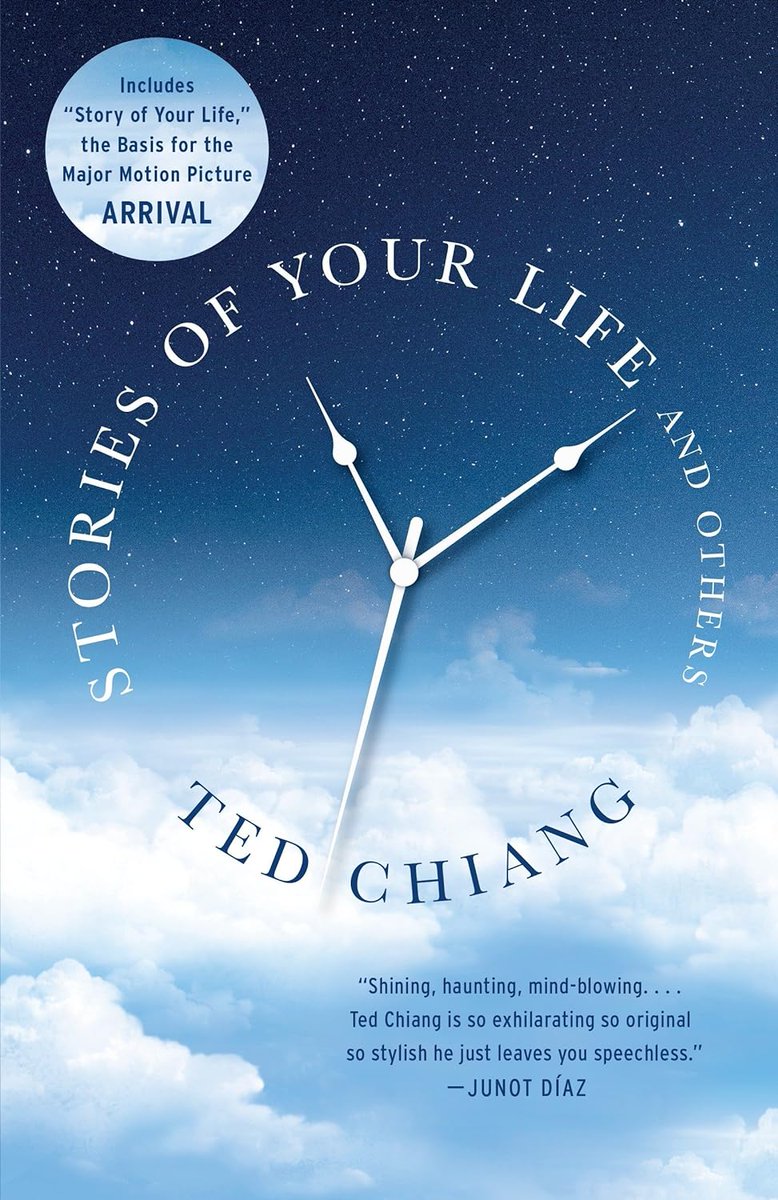
23) Exhalation: Stories by Ted Chiang
This contemplates the marvel of thermodynamics from the best sci-fi short story writer of our age.
This contemplates the marvel of thermodynamics from the best sci-fi short story writer of our age.
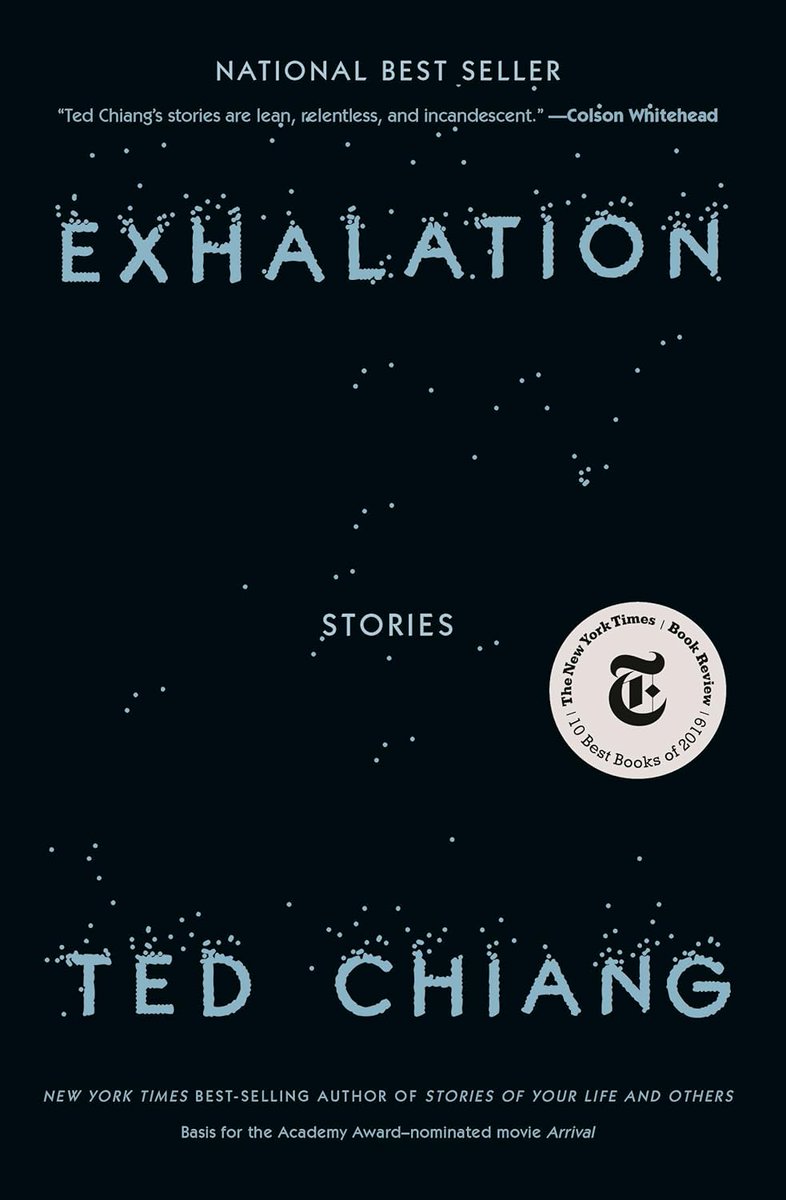
24) Snow Crash by Neal Stephenson
Snow Crash is an amazing, amazing book. There’s nothing quite similar to Snow Crash. Snow Crash is in a league of its own.
Snow Crash is an amazing, amazing book. There’s nothing quite similar to Snow Crash. Snow Crash is in a league of its own.
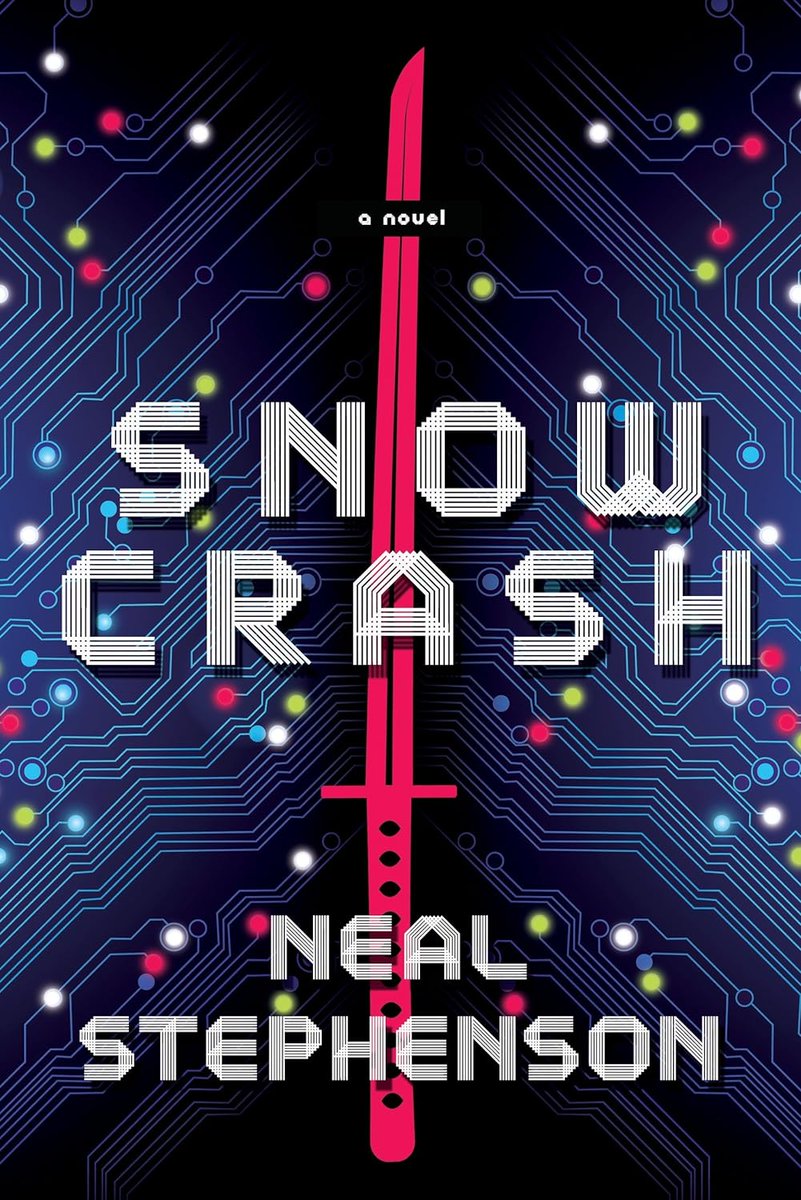
@nealstephenson 25) The Last Question by Isaac Asimov
I quote The Last Question all of the time. I loved it as a kid.
I quote The Last Question all of the time. I loved it as a kid.
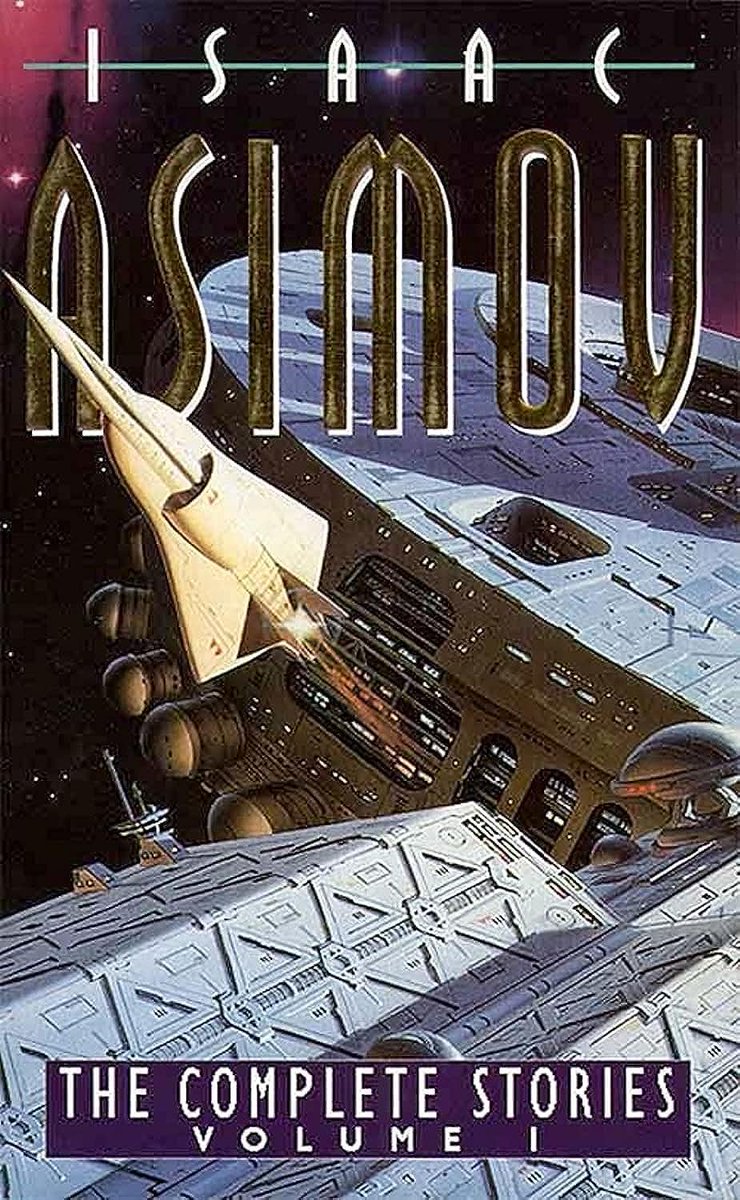
@nealstephenson Thank you for going through the thread. Follow me at @readswithravi for more book learning, reviews, and lessons. Teach or share with others what you learn, that's how we grow.
Retweet the first tweet so you can share these reads with others.
Retweet the first tweet so you can share these reads with others.
https://twitter.com/readswithravi/status/1740625525415227727
• • •
Missing some Tweet in this thread? You can try to
force a refresh

